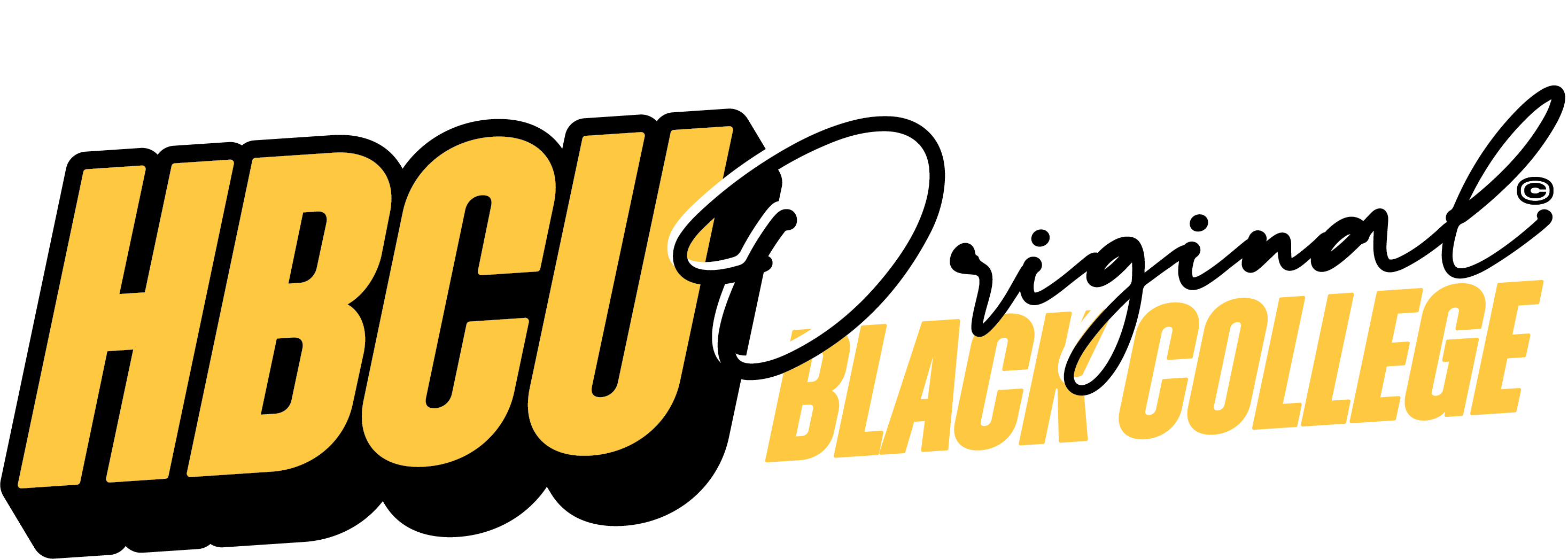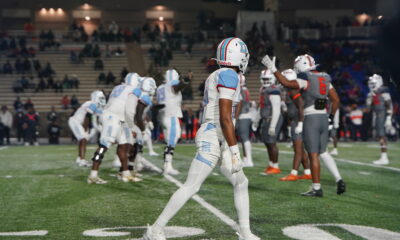HBCU ORIGINAL
DSU Becomes First HBCU to Launch Private Merchandise Label
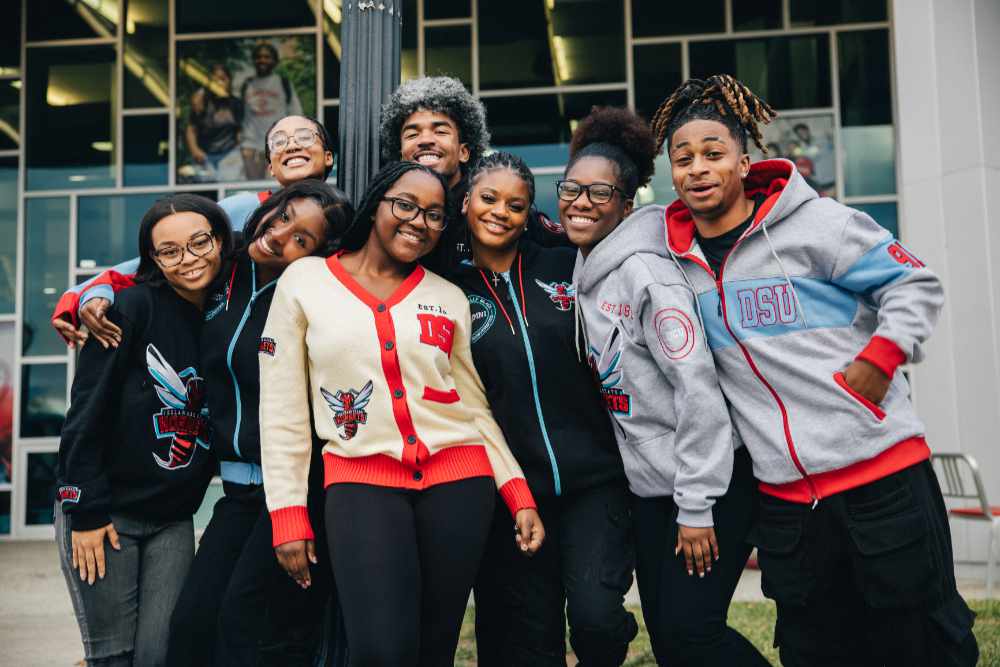
Delaware State University (DSU) has made history as the first Historically Black College and University (HBCU) to launch its own private-label merchandise line. Starting this week, DSU apparel, including hoodies, sweaters, and other items, will be available on major online platforms like Amazon and Walmart, thanks to a groundbreaking partnership with Everything Collegiate, LLC, a Black-owned business based in Atlanta, Georgia.
The launch features a range of DSU-branded apparel adorned with the university’s signature Hornets logo, offering the DSU community a unique way to show school pride. This initiative allows DSU to control the design, quality, and selection of the products sold, ensuring that the merchandise resonates with students, faculty, staff, alumni, and supporters. As an added benefit, 5% of sales from the DSU private label will go toward funding student scholarships.
Everything Collegiate, a company with over 20 years of experience in the collegiate merchandise industry, is the primary vendor for over 60 colleges, including 39 HBCUs. The company, founded by Terance Harmon, holds more than 85 brand licenses for colleges, fraternities, and societies, offering a wide range of custom collegiate products such as apparel and accessories.
“This partnership is a pivotal moment in our mission to support and uplift HBCUs,” said Harmon. “Working with DSU to develop its private merchandise line has been incredibly fulfilling, and we are excited to take this historic step with them.”
DSU’s initial collaboration with Everything Collegiate began last year during the university’s rebranding efforts, which were met with an overwhelmingly positive response. “The new designs resonated deeply with our students, faculty, and alumni,” said Dr. Dawn Mosley, Senior Associate Vice President of Marketing and Communications. “By having control over the design process, we ensured that the products truly reflected DSU’s identity.”
With the launch of the private label, Everything Collegiate will manage the distribution while assisting DSU in expanding its product offerings both online and in additional retail outlets. This strategy will increase the university’s brand visibility while maintaining high-quality standards.
“We’re no longer limited to mass-produced items with our logo slapped on them,” Dr. Mosley added. “This initiative represents true ownership of our brand, protecting what DSU has built over more than a century.”
While DSU will continue to work with existing campus retailers, this new venture creates an exciting opportunity for students and alumni to contribute their own design ideas. Proceeds from sales will go toward supporting scholarships for DSU students, with the first round of awards scheduled for spring 2025.
Future merchandise will feature DSU’s exclusive Hornets™ branding. To shop the new collection, visit hbcudsu.com.
HBCU ORIGINAL
Delaware State Shows Fight in Road Matchup vs Saint Joseph’s
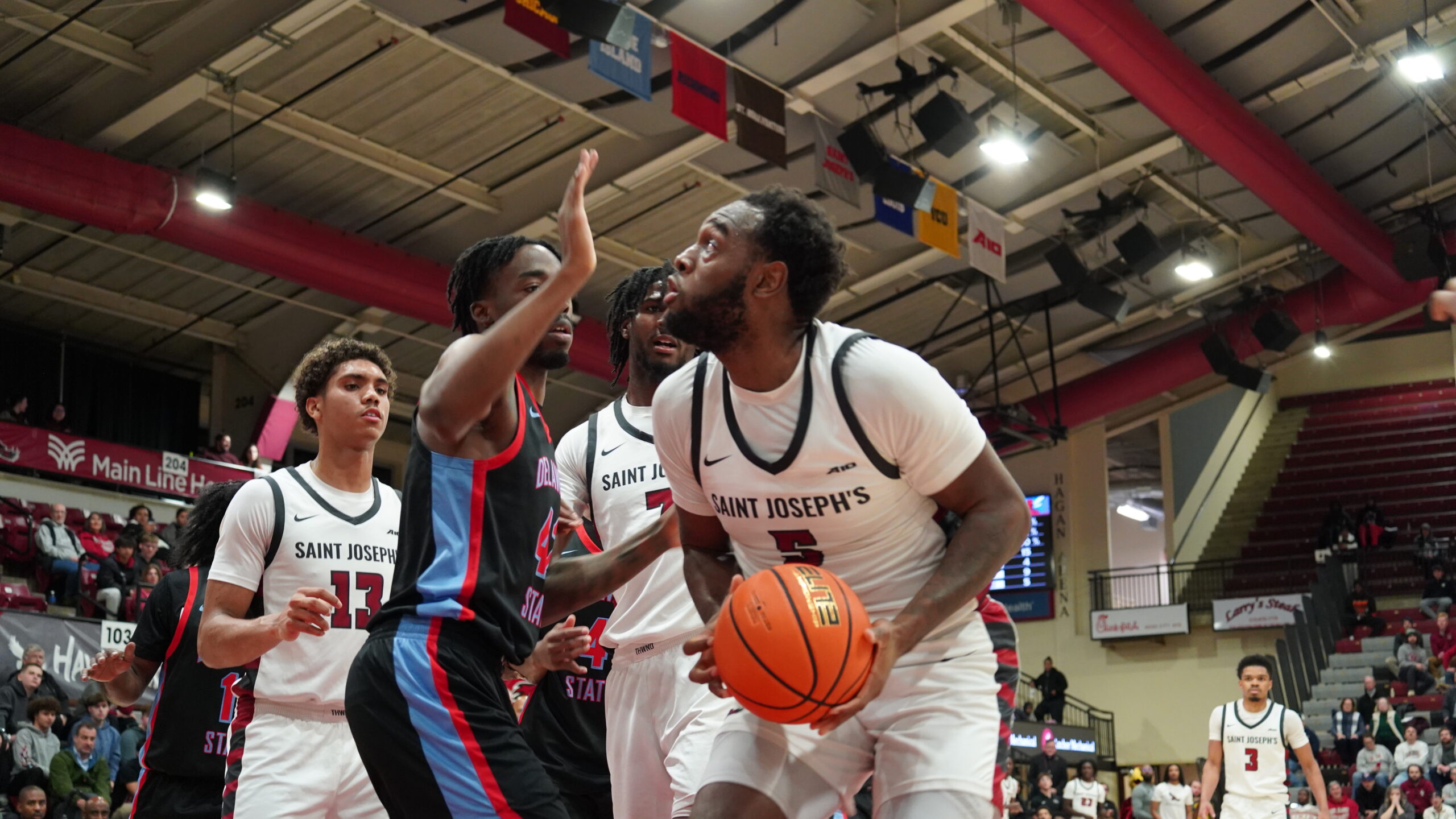
PHILADELPHIA — The Delaware State Hornets continued their non-conference slate Thursday night, facing a determined Saint Joseph’s squad in a 67–51 contest that showcased resilience, youth development, and flashes of defensive intensity from the Hornets.
After a slow shooting start, Delaware State settled in and found its rhythm midway through the first half, cutting the deficit to just three points at 15–12 following a strong response on both ends of the floor. The Hornets battled through early pressure, showing poise and defensive commitment against a hot-shooting Hawks lineup.
Saint Joseph’s took advantage of perimeter shooting early, building momentum heading into halftime, but Delaware State refused to fold. The Hornets continued to compete after the break, answering runs and playing with energy as the game progressed.
Delaware State showed improved ball movement and defensive presence in the second half, working to close the gap after Saint Joseph’s extended its lead. Despite the final margin, the Hornets’ late push reflected their persistence and growth, particularly against a short-handed but aggressive opponent.
As the season continues, Delaware State remains focused on building chemistry, tightening execution, and turning these competitive moments into wins as conference play approaches.
Final Score: Saint Joseph’s 67, Delaware State 51
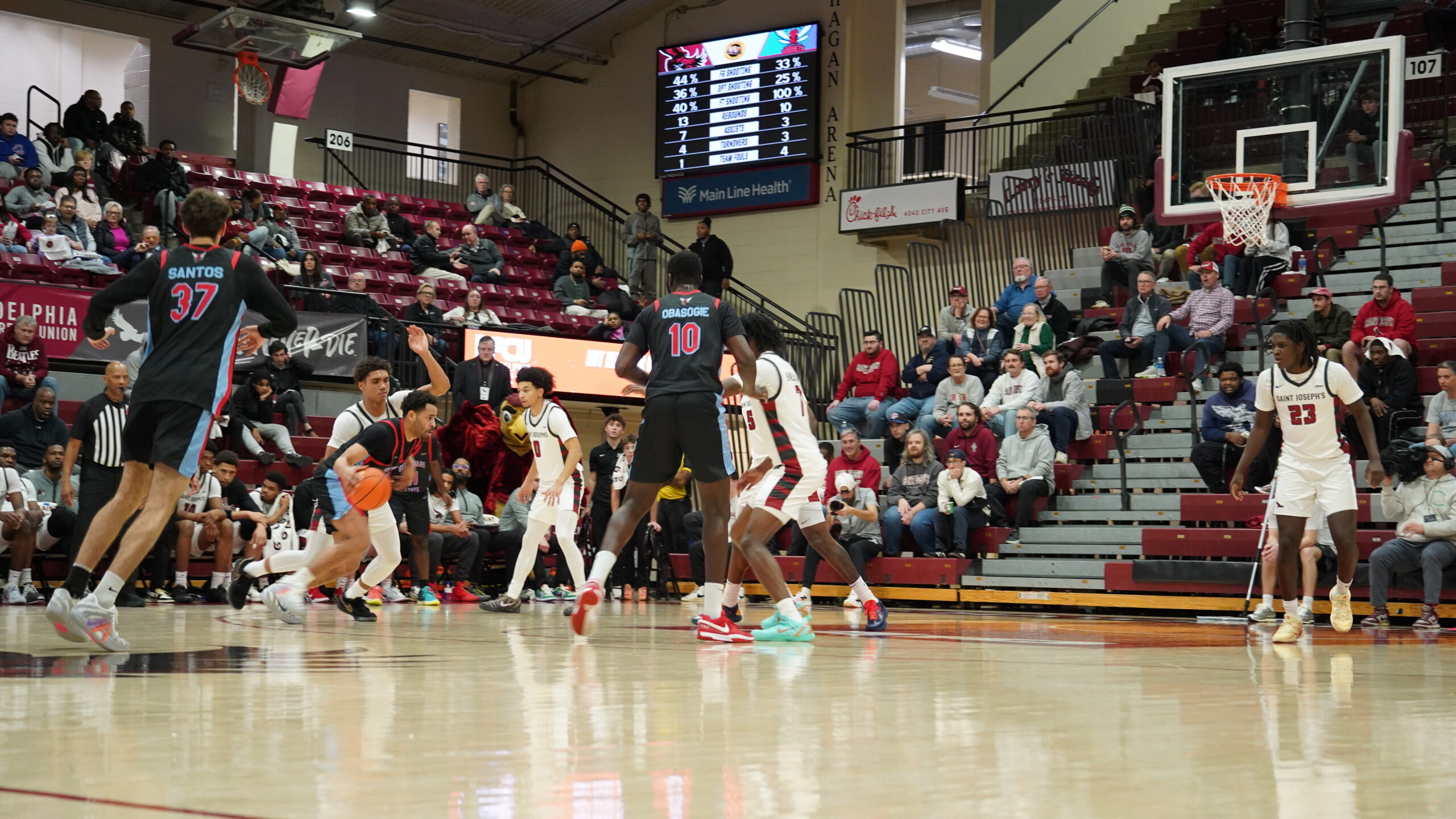
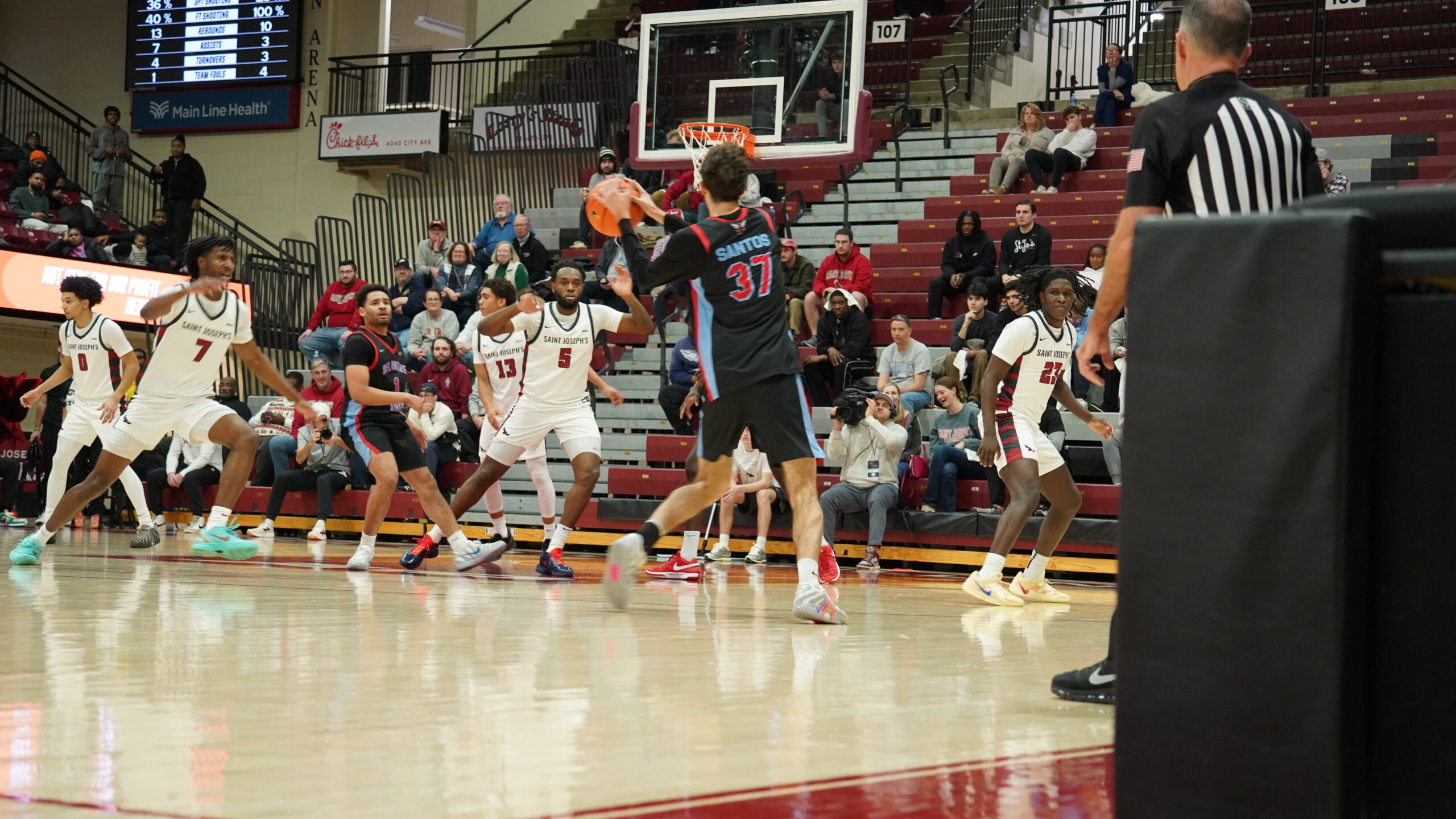
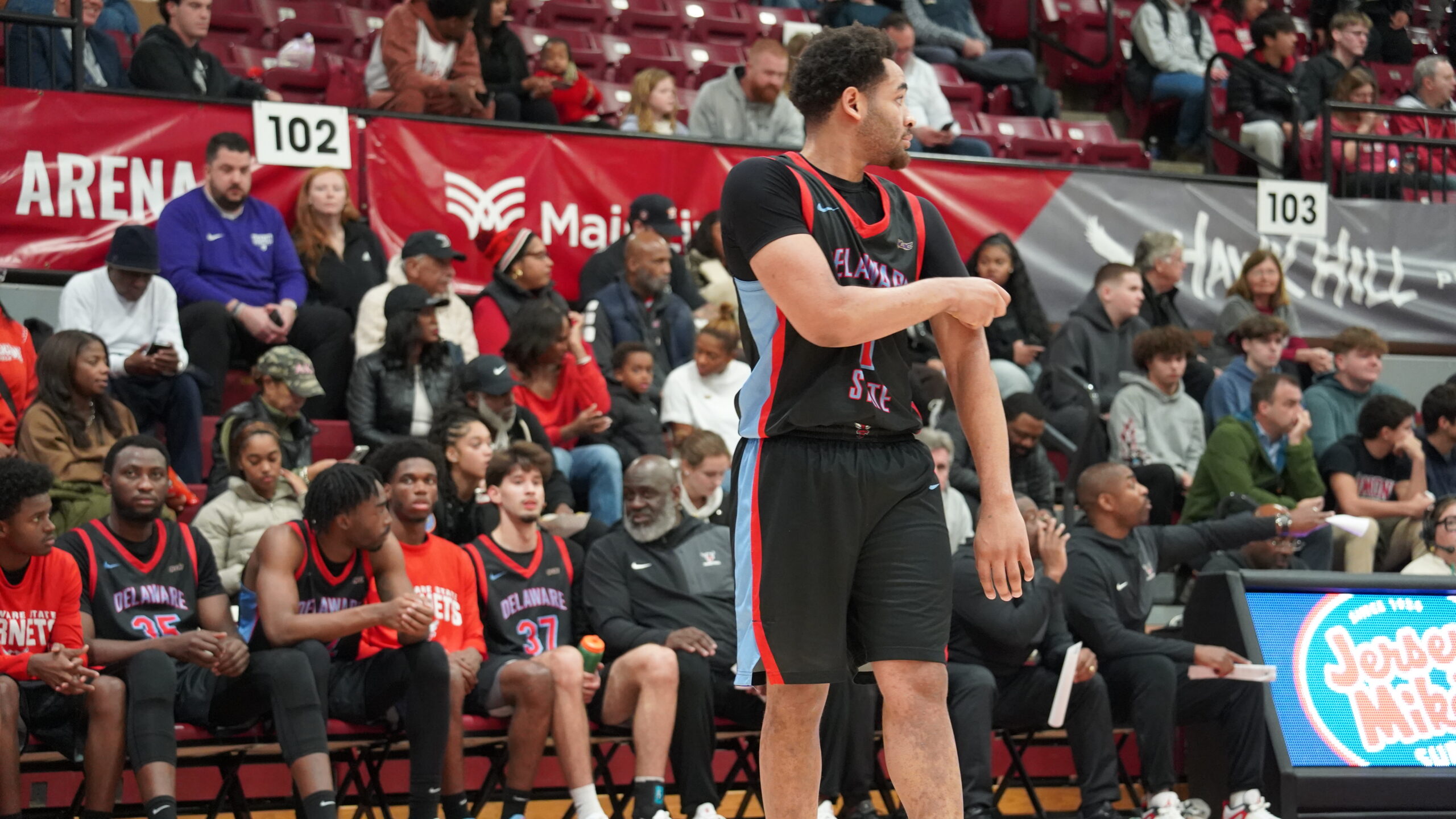
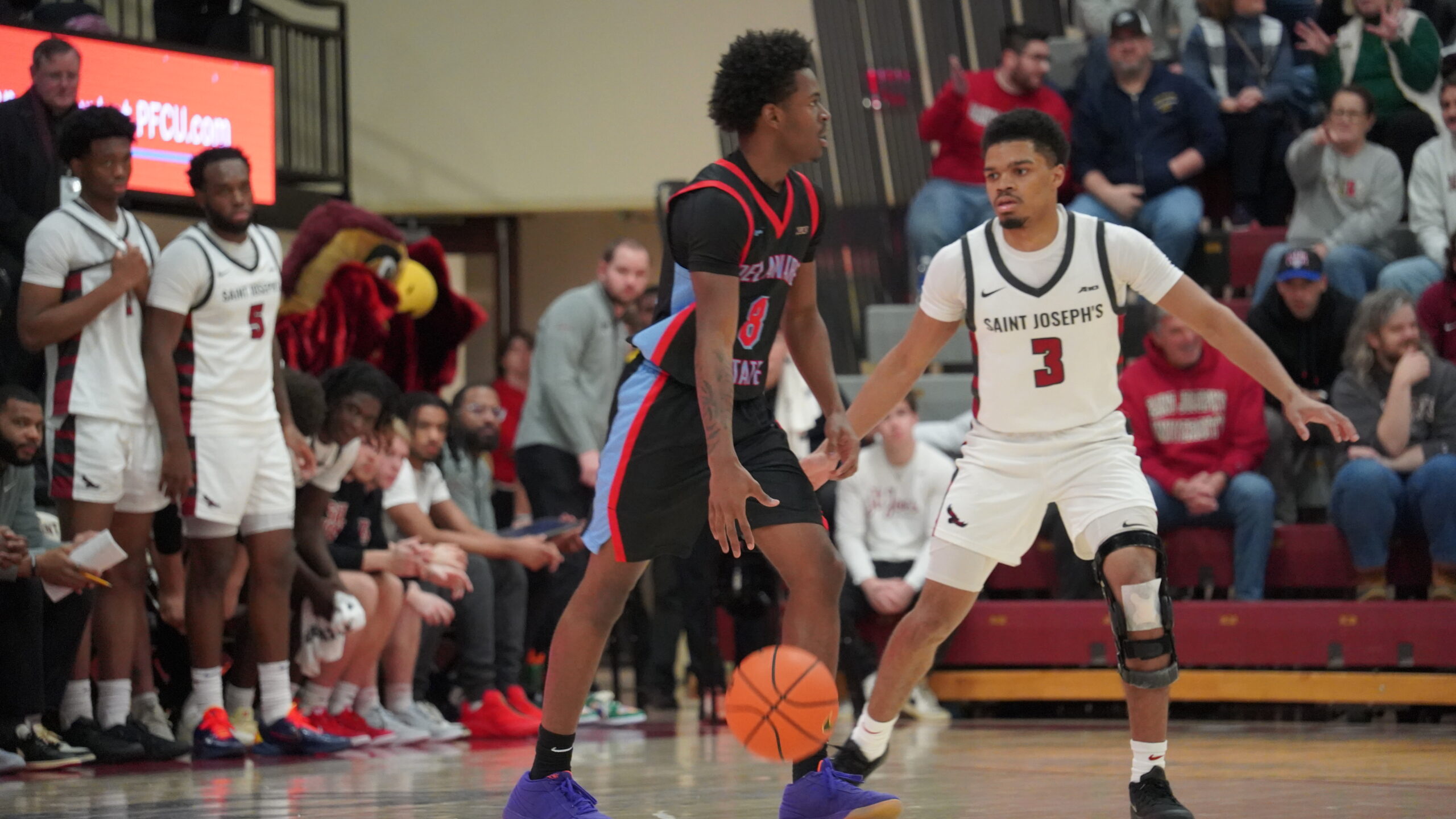
HBCU ORIGINAL
Okojie’s Double-Double Lifts Howard Past Drexel in Philadelphia
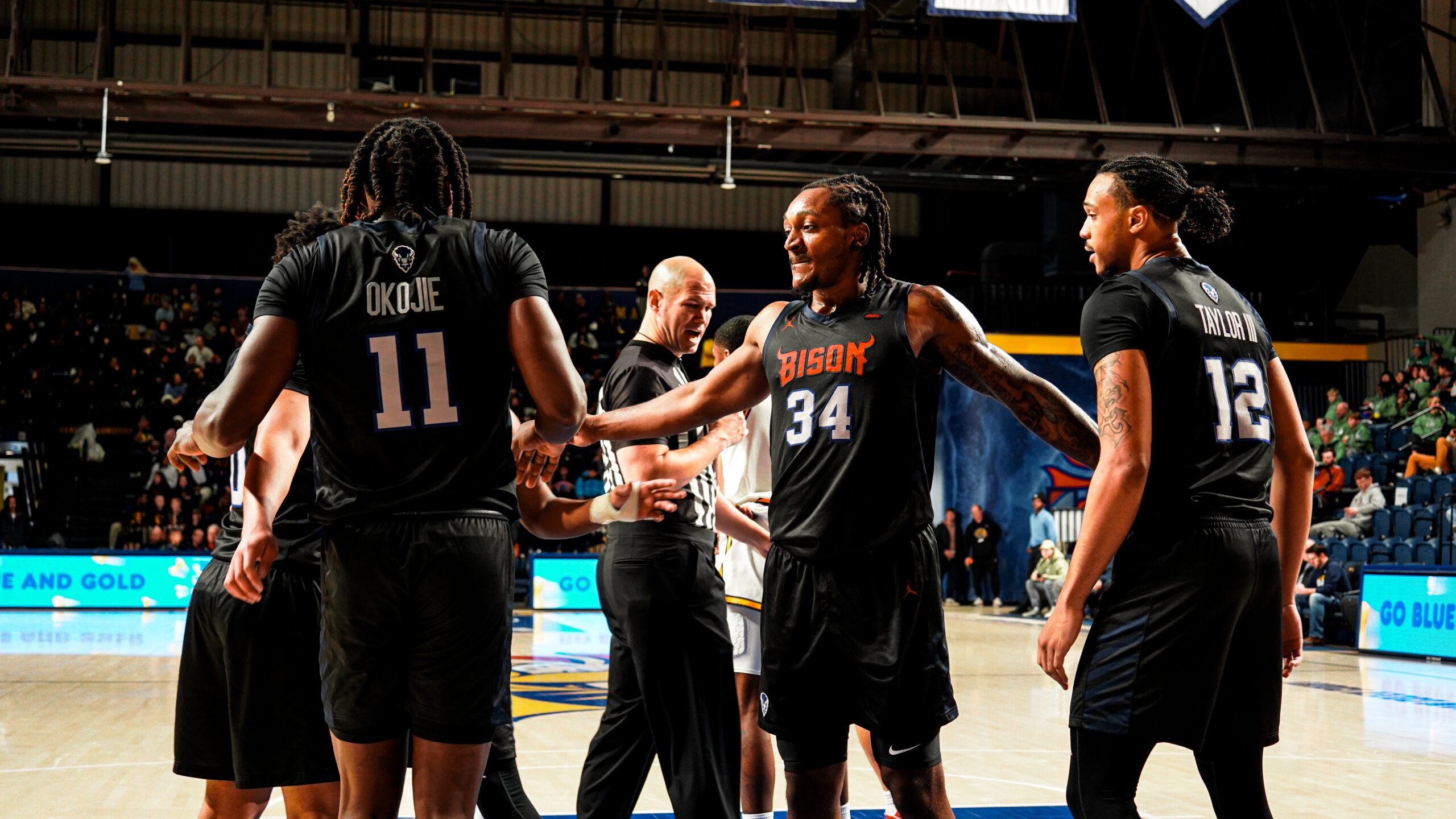
PHILADELPHIA — Ose Okojie delivered a composed, physical performance on both ends, finishing with 17 points and 10 rebounds as Howard held off Drexel, 74-66, on Tuesday night.
The victory marked Howard’s fourth straight win and its first true road victory of the season after three previous attempts. The Bison (8-5) controlled the game early and leaned on efficiency and free-throw shooting down the stretch to seal the win inside Drexel’s home arena.
Howard shot nearly 48 percent from the field and an impressive 92 percent at the free-throw line, knocking down 23 of 25 attempts. Cam Gillus filled the stat sheet with 16 points, nine rebounds, and six assists, while Bryce Harris scored 13 points, including seven free throws. Cedric Taylor III added 12 points, punctuating the Bison’s late-game composure with a key layup in the final two minutes.
The Bison seized control early, building a 36-25 halftime lead behind Okojie’s 11 first-half points and Gillus’ perimeter shooting. A Gillus three midway through the opening half gave Howard a lead it would not relinquish after the first two minutes of play, with the margin ballooning to as many as 16 points.

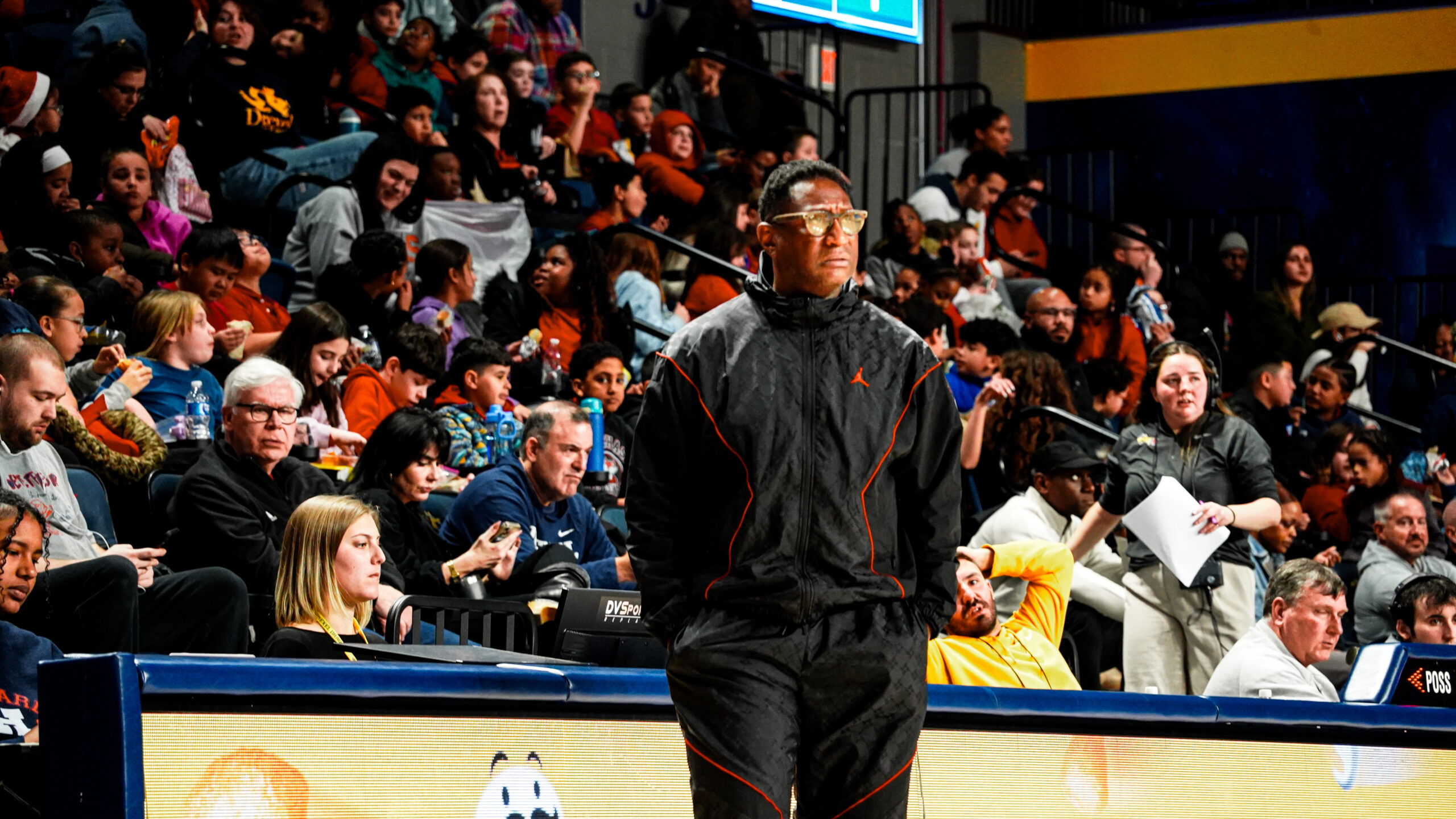
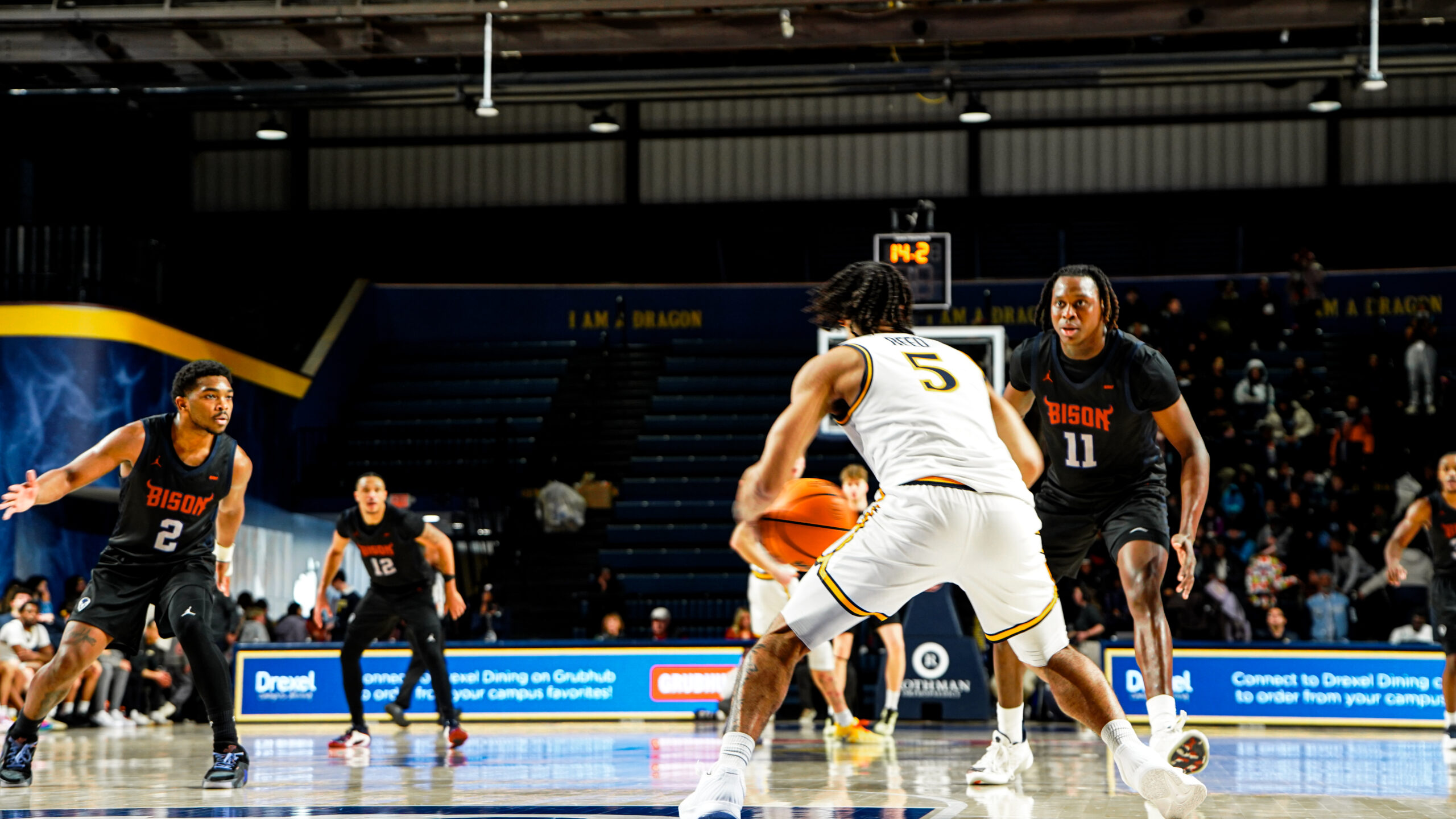
Drexel (4-7) made multiple pushes in the second half behind a career night from Kevon Vanderhorst. The guard poured in 30 points on 8-of-11 shooting, including four three-pointers, and went 10-for-11 from the free-throw line. Villiam Garcia Adsten chipped in 11 points, six rebounds, and four assists for the Dragons.
Despite Drexel cutting the deficit to single digits late, Howard’s rebounding advantage (36-22) and poise at the line proved decisive. Okojie secured the defensive rebound on Drexel’s final missed free throw with eight seconds remaining, effectively closing the door.
Howard never trailed after taking a 7-5 lead early in the first half, continuing to show growth away from home as it builds momentum heading deeper into the season.
HBCU ORIGINAL
South Carolina State storms back from 28 down, wins 10th-anniversary Cricket Celebration Bowl in four-overtime thriller, 40–38
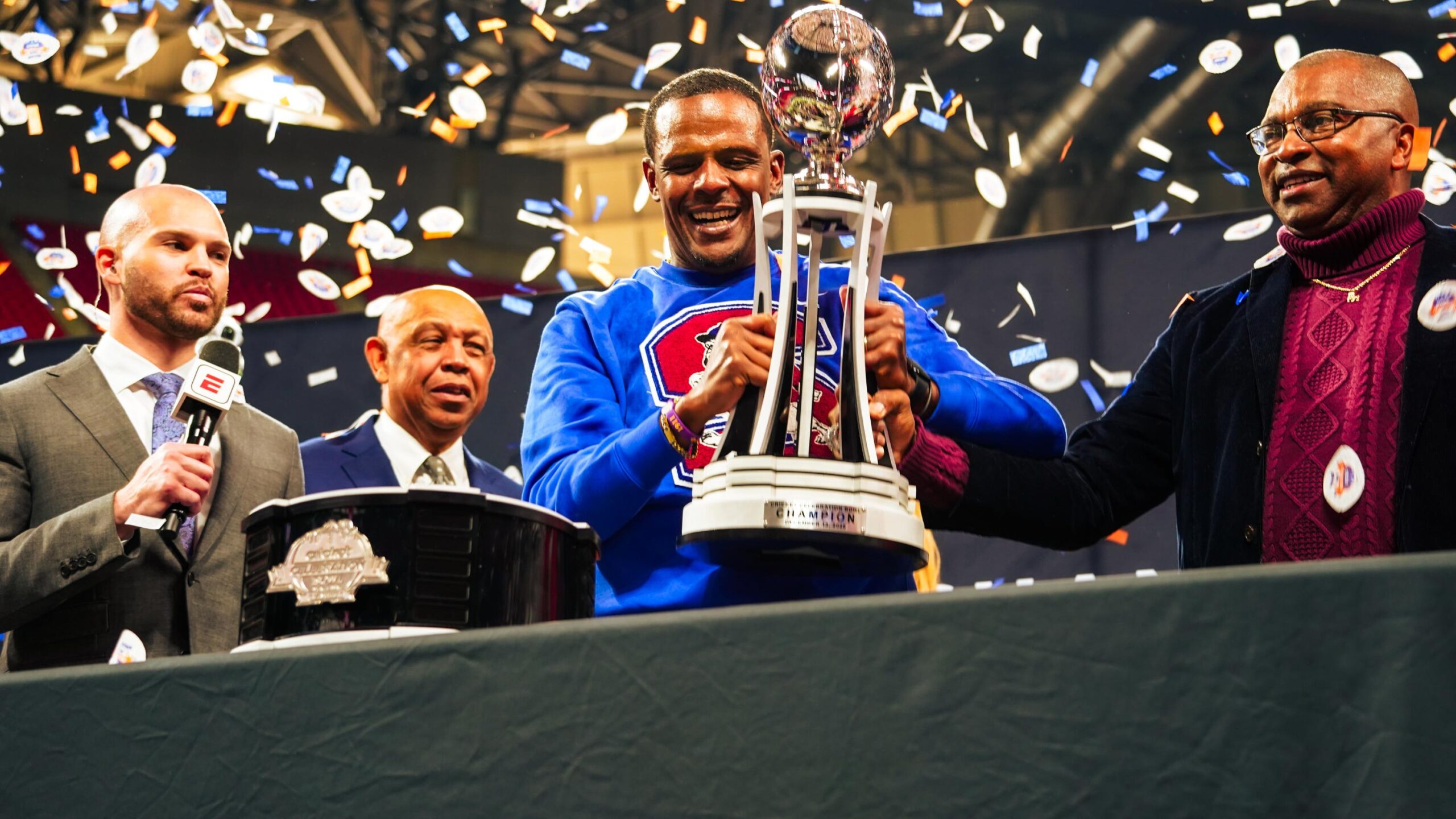
HBCU Original | On the Ground – Atlanta
ATLANTA — Ten years into the Cricket Celebration Bowl, HBCU football delivered a moment built for history.
South Carolina State erased a stunning 28-0 deficit, survived a late Prairie View A&M haymaker, and outlasted the Panthers through four overtimes to claim a 40–38 victory in the 10th-anniversary Celebration Bowl at Mercedes-Benz Stadium.
For nearly three quarters, Prairie View looked ready to turn the championship stage into a statement. Quarterback Cameron Peters was in full command early, spreading the ball and using his legs to keep the Bulldogs off balance. His opening-quarter touchdown pass to Ethan John set the tone, and by halftime Prairie View had built a commanding 21-0 lead.
The Panthers pushed it to 28-0 early in the third quarter when Peters found Andre Dennis, and the Celebration Bowl crowd braced for a runaway.
Then everything changed.
South Carolina State flipped the game with urgency and belief, leaning heavily on quarterback Ryan Stubblefield, who refused to let the Bulldogs fade. Stubblefield cracked the scoreboard with a short touchdown run, then sparked a rapid surge that included a Jordan Smith rushing score and a Stubblefield-to-Smith touchdown through the air. What once felt insurmountable suddenly became a one-score game.
Early in the fourth quarter, Stubblefield powered in from a yard out, completing the comeback and tying the game at 28–28.
Prairie View still had one more punch. Peters delivered a 78-yard strike to Cameron Bonner to retake the lead, igniting the Panthers’ sideline and threatening to slam the door shut. But Stubblefield answered yet again, engineering a late drive and finding Jordan Smith for the tying touchdown with under two minutes remaining.
Overtime followed — and so did drama.
The teams exchanged field goals in the first extra period. The second overtime passed scoreless. Under the two-point shootout format in the third overtime, both teams came up empty. In the fourth, South Carolina State finally broke through when Tyler Smith converted the Bulldogs’ attempt. Prairie View’s final answer fell short.
The comeback was complete.
South Carolina State had just authored the largest comeback in Celebration Bowl history.
Scoring Summary
1Q (1:02) — PV: Cameron Peters 16-yard TD pass to Ethan John (PV 7-0)
2Q (10:30) — PV: Peters 27-yard TD run (PV 14-0)
2Q (1:05) — PV: Peters 14-yard TD pass to Jyzaiah Rockwell (PV 21-0)
3Q (12:41) — PV: Peters 13-yard TD pass to Andre Dennis (PV 28-0)
3Q (11:19) — SCS: Ryan Stubblefield 5-yard TD run (PV 28-7)
3Q (8:34) — SCS: Jordan Smith 10-yard TD run (PV 28-14)
3Q (5:05) — SCS: Stubblefield 19-yard TD pass to Jordan Smith (PV 28-21)
4Q (10:44) — SCS: Stubblefield 1-yard TD run (28-28)
4Q (9:53) — PV: Peters 78-yard TD pass to Cameron Bonner (PV 35-28)
4Q (1:54) — SCS: Stubblefield 10-yard TD pass to Jordan Smith (35-35)
OT1: Prairie View FG; South Carolina State FG (38-38)
OT2: No scoring
OT3: Two-point tries — both teams fail
OT4: SCS converts (Tyler Smith); PV fails — Final: SCS 40, PV 38
Team Stats
-
Total Yards: PV 491 | SCS 357
-
Passing: PV 436 | SCS 279
-
Rushing: PV 55 | SCS 78
-
Time of Possession: PV 25:45 | SCS 34:15
-
Turnovers: PV 2 | SCS 1
Game Leaders
South Carolina State
-
Ryan Stubblefield: 15-29, 234 yards, 2 TD, 1 INT; 11 rushes, 11 yards, 3 TD
-
Jordan Smith: 9 catches, 152 yards, 2 TD; 1 rushing TD
-
Brenyen Scott: 9 tackles (Defensive MVP)
Prairie View A&M
-
Cameron Peters: 24-36, 412 yards, 4 TD; 35 rushing yards, TD
-
Andre Dennis: 7 catches, 131 yards, TD
-
Sterling Roberts: 11 tackles, 2.5 sacks
Records Broken
-
Largest comeback in Celebration Bowl history (28 points)
-
Most passing yards (team): Prairie View A&M (436)
-
Most passing yards (player): Cameron Peters (412)
-
Most receptions: Jordan Smith (9)
-
Most receiving yards: Jordan Smith (152)
-
Attendance: 26,703
Final Word
The four-overtime epic surpassed the two-overtime thriller of 2022, once again raising the bar for the Celebration Bowl stage.
Prairie View A&M lit up the night with record-setting offense. But South Carolina State delivered the lasting image — resilience, belief, and a quarterback who simply refused to let his team fade.
Ten years in, the Cricket Celebration Bowl didn’t just celebrate HBCU football.
It etched another unforgettable chapter in its history.

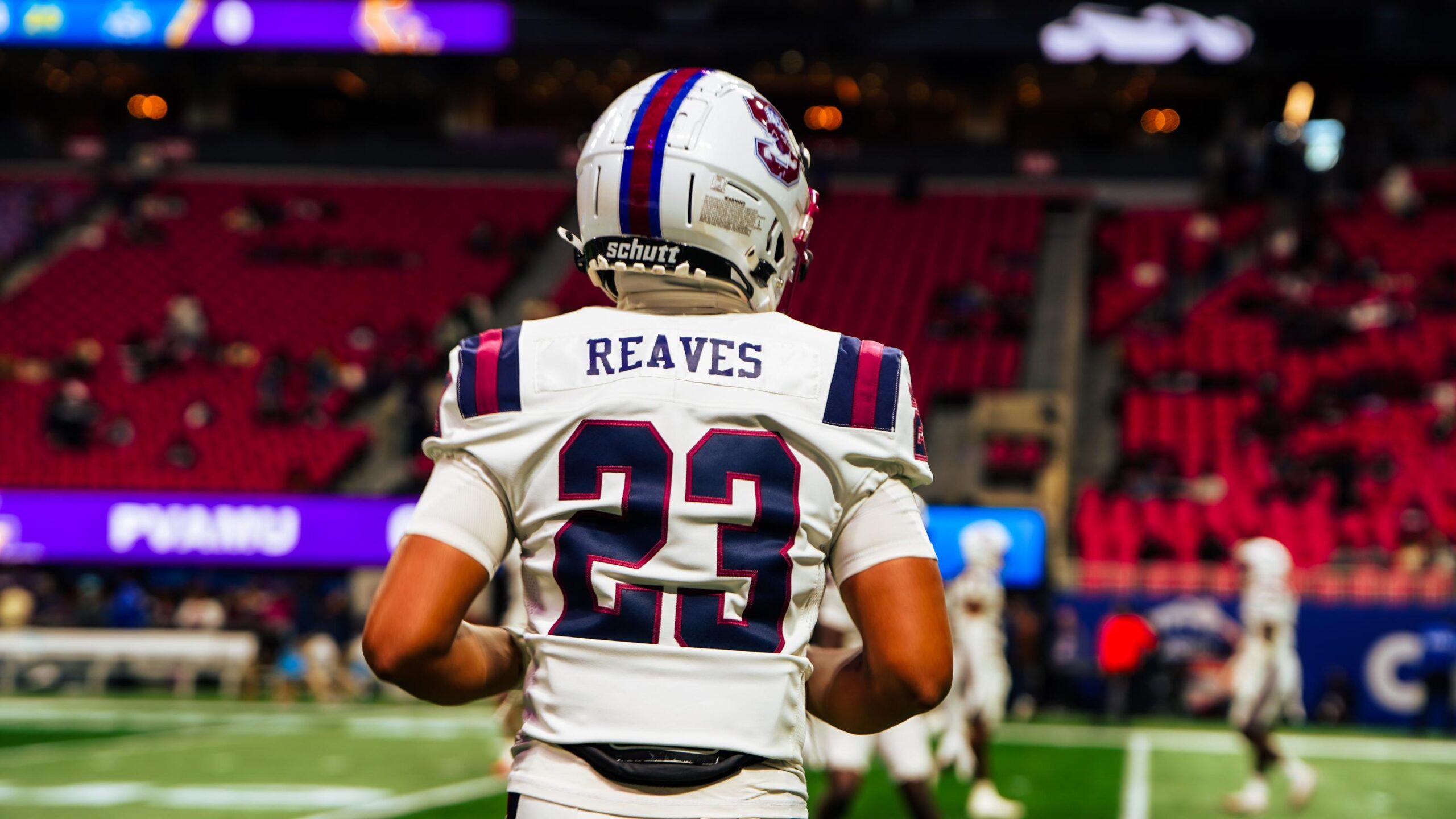
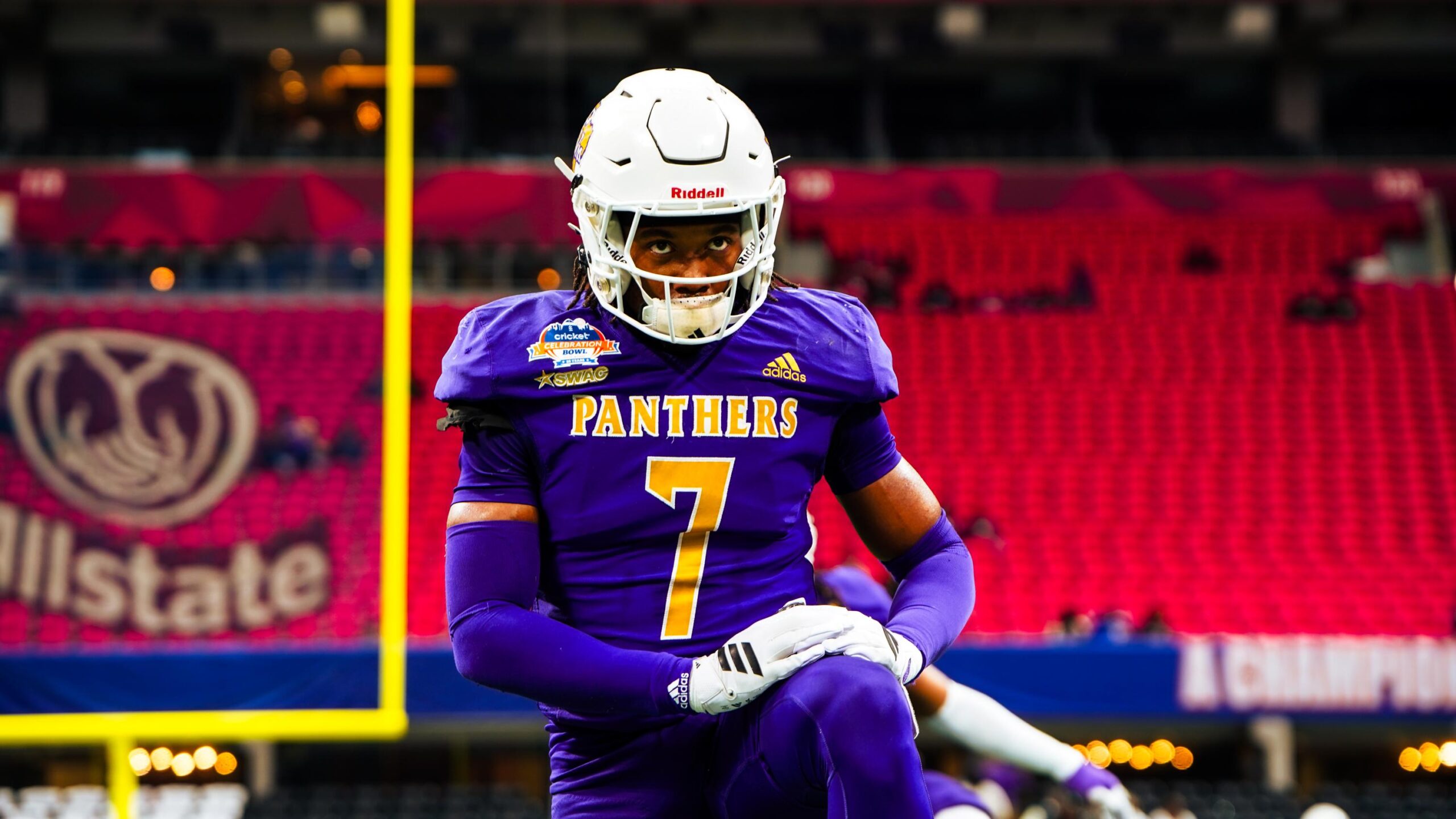
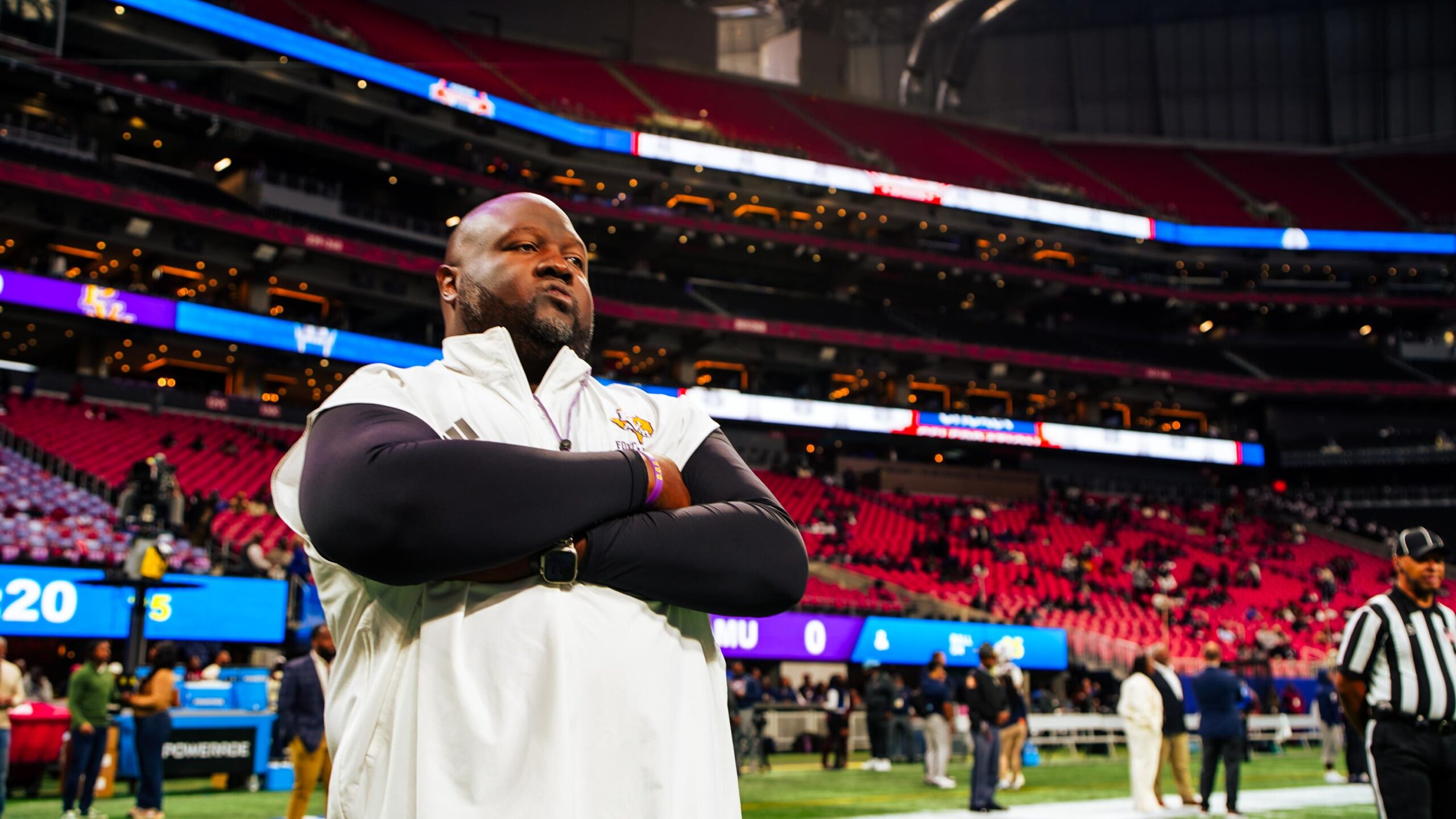
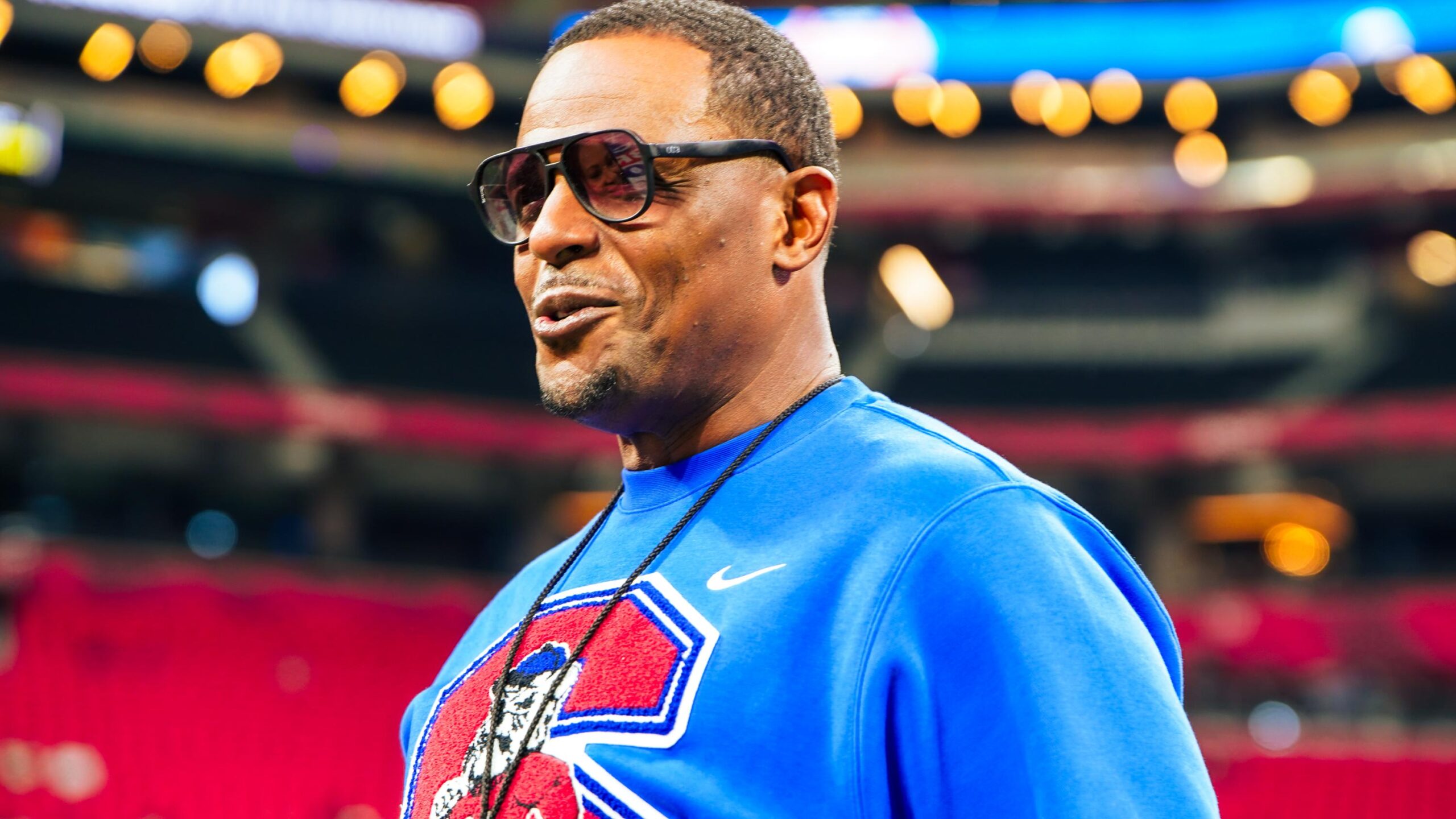
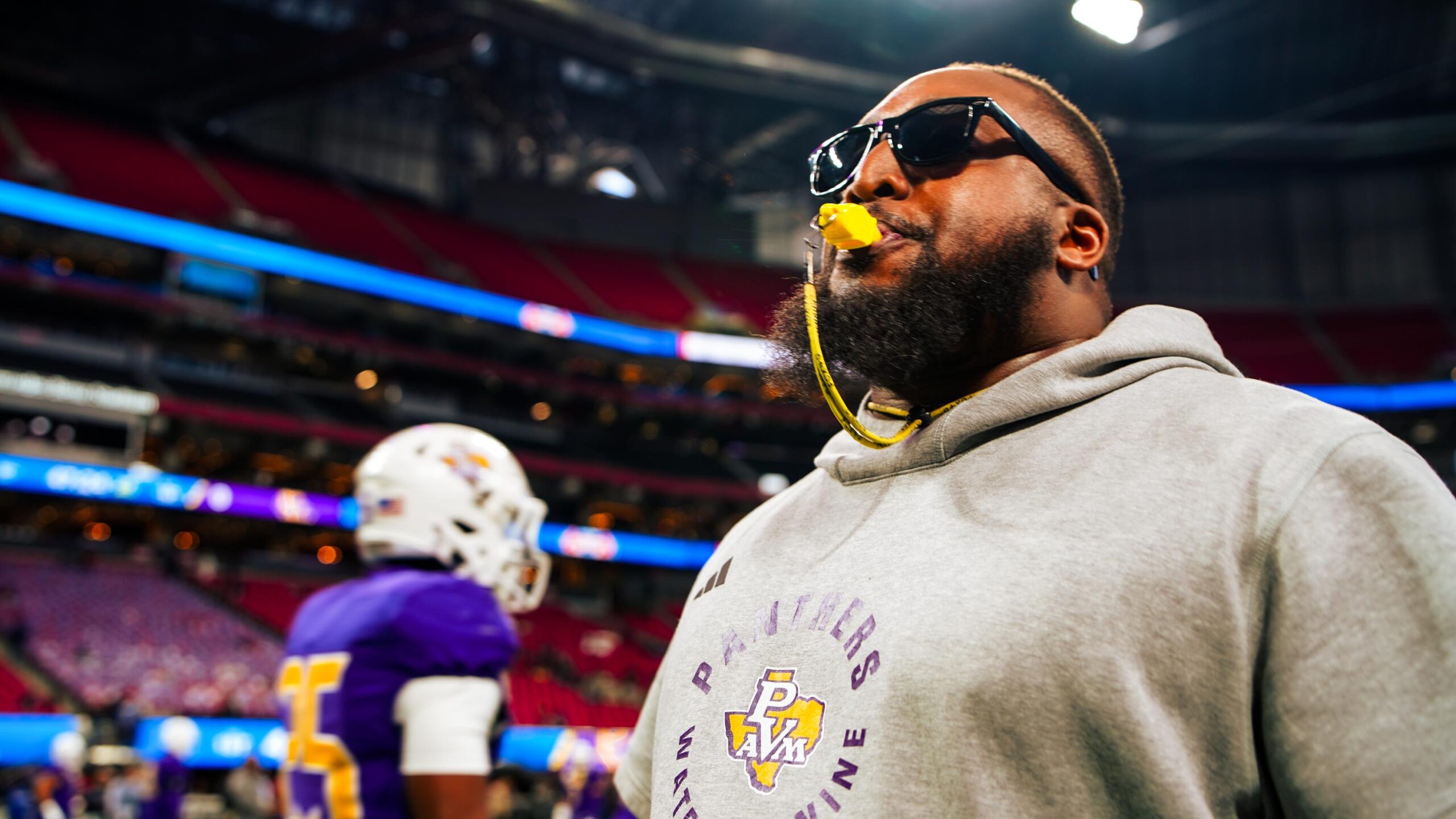
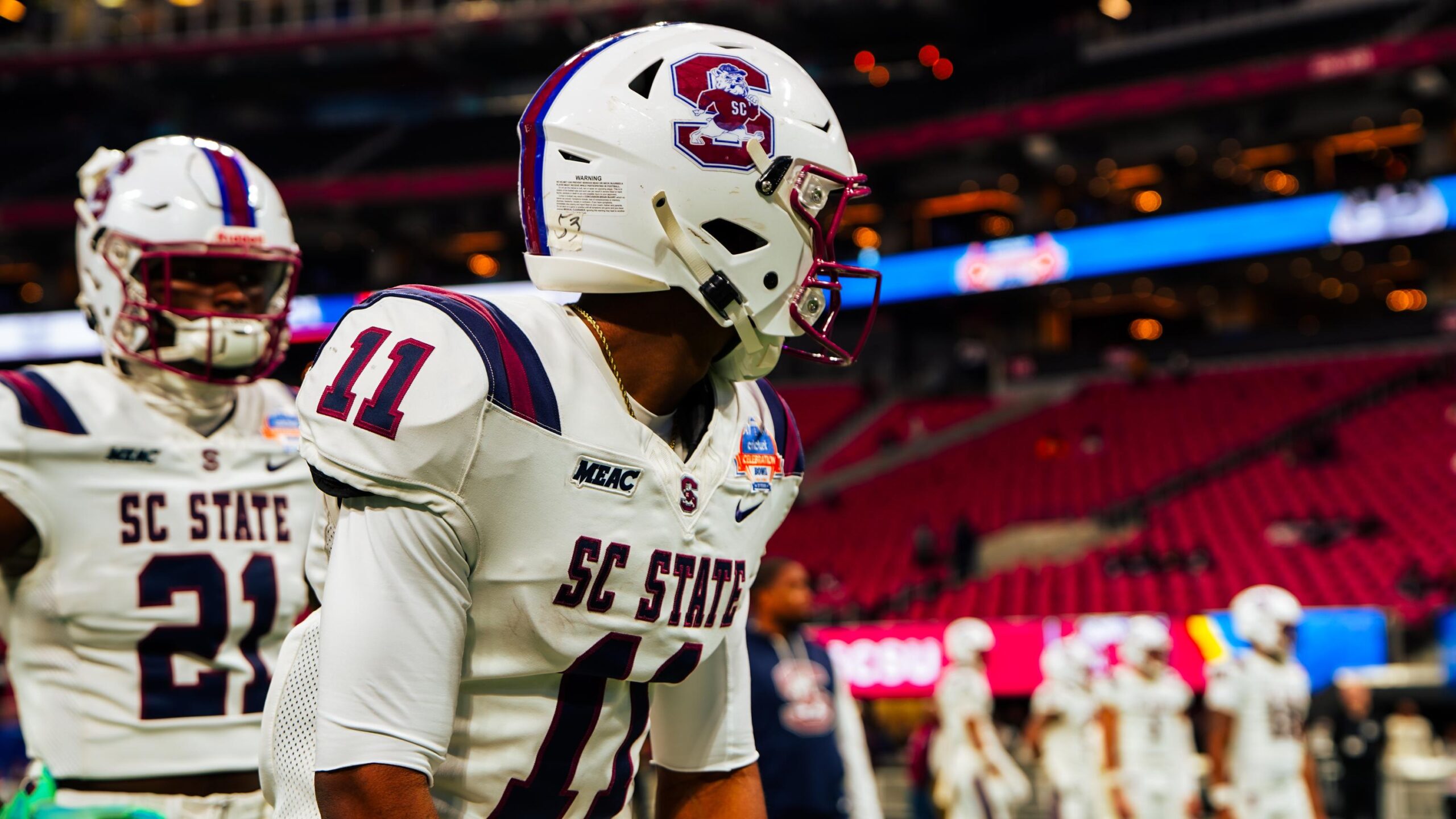
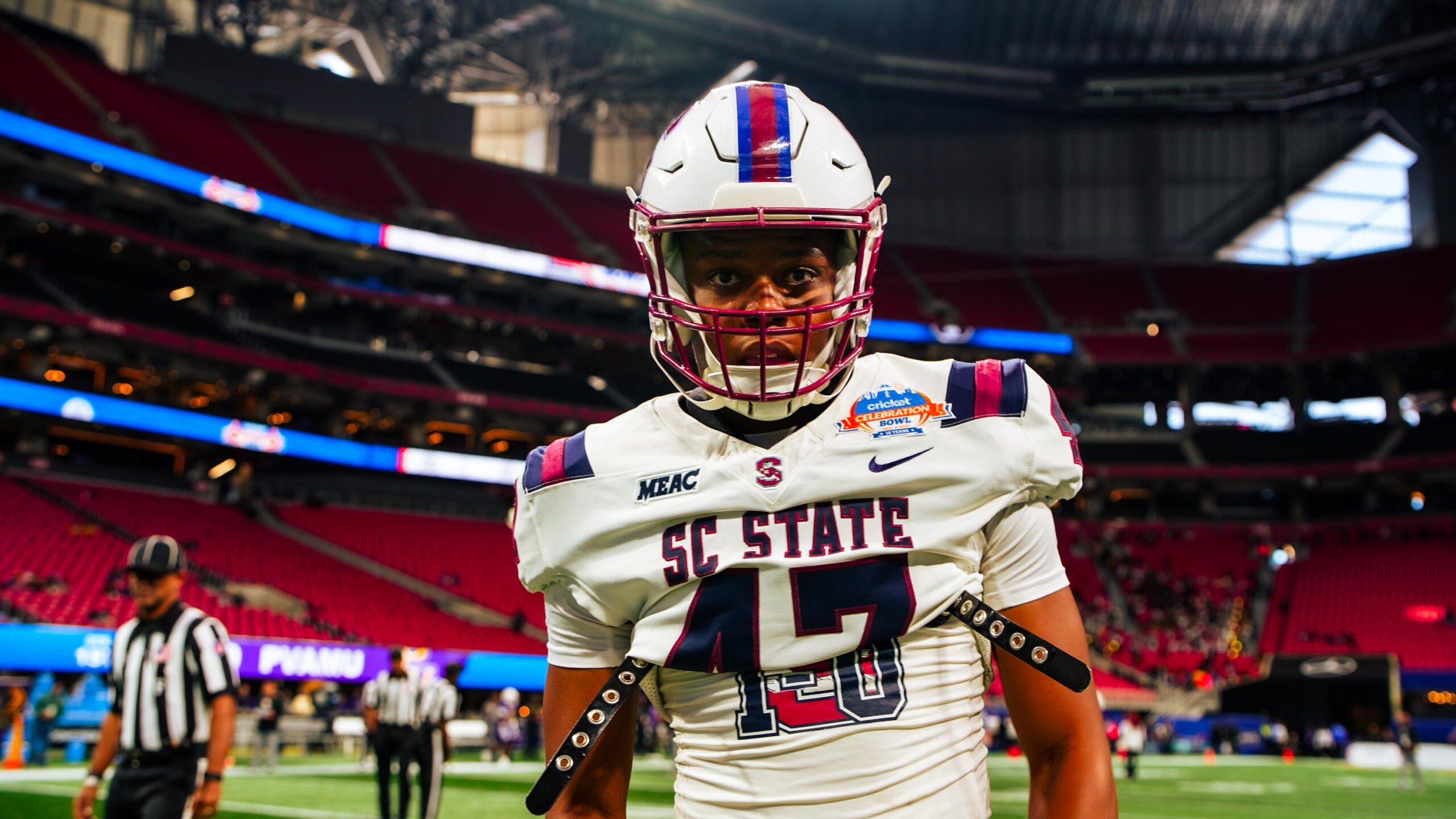
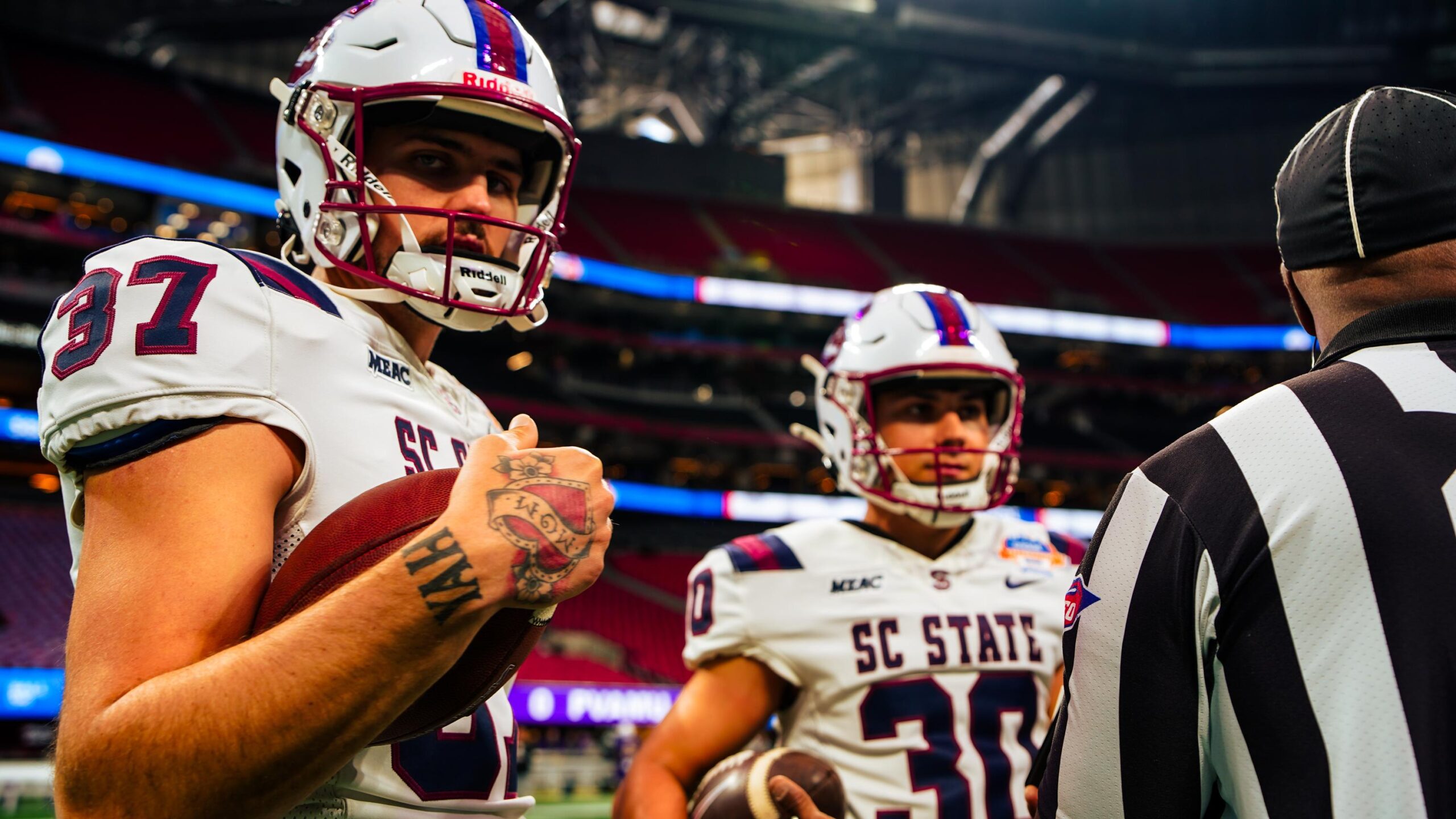
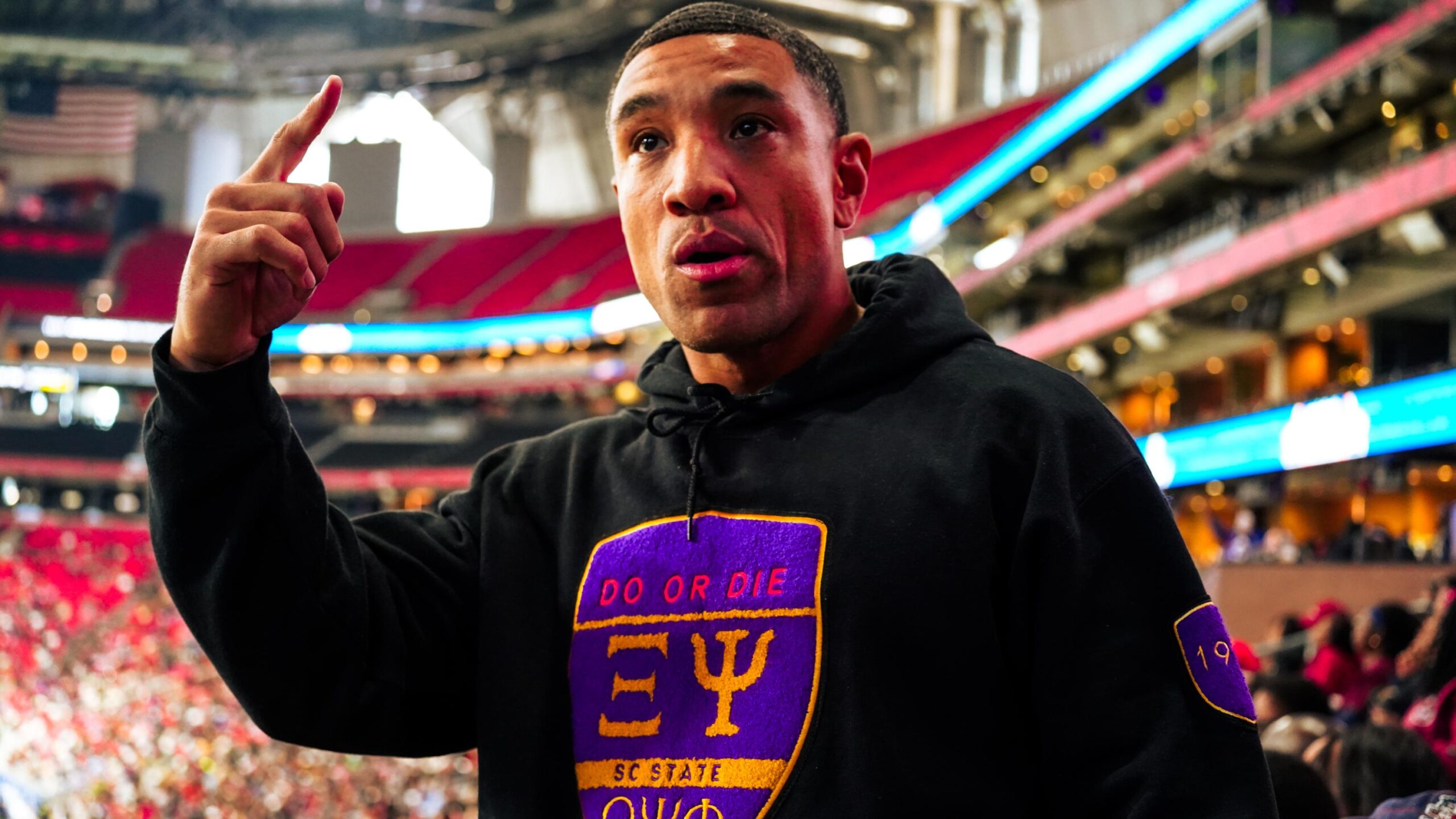
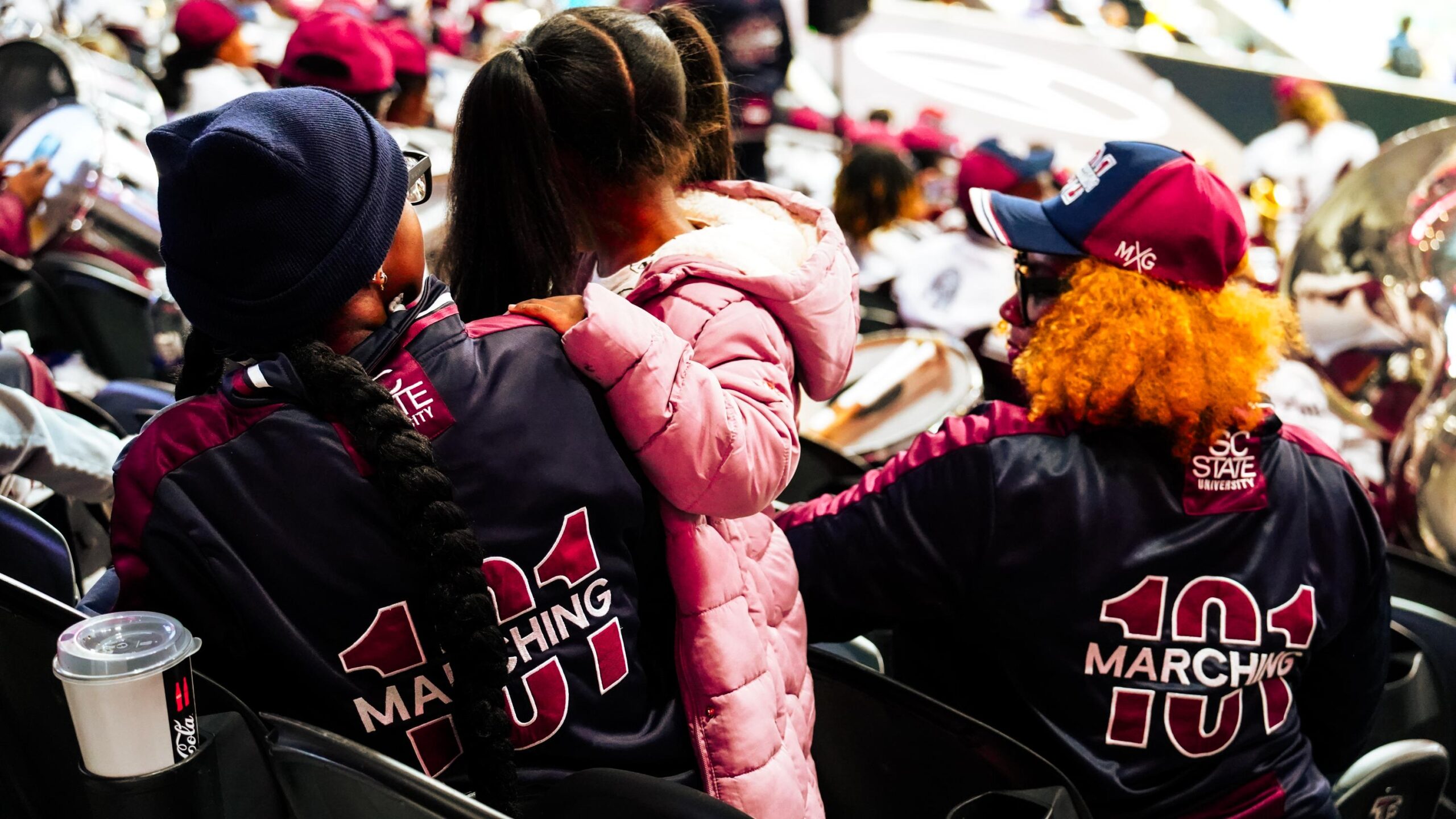
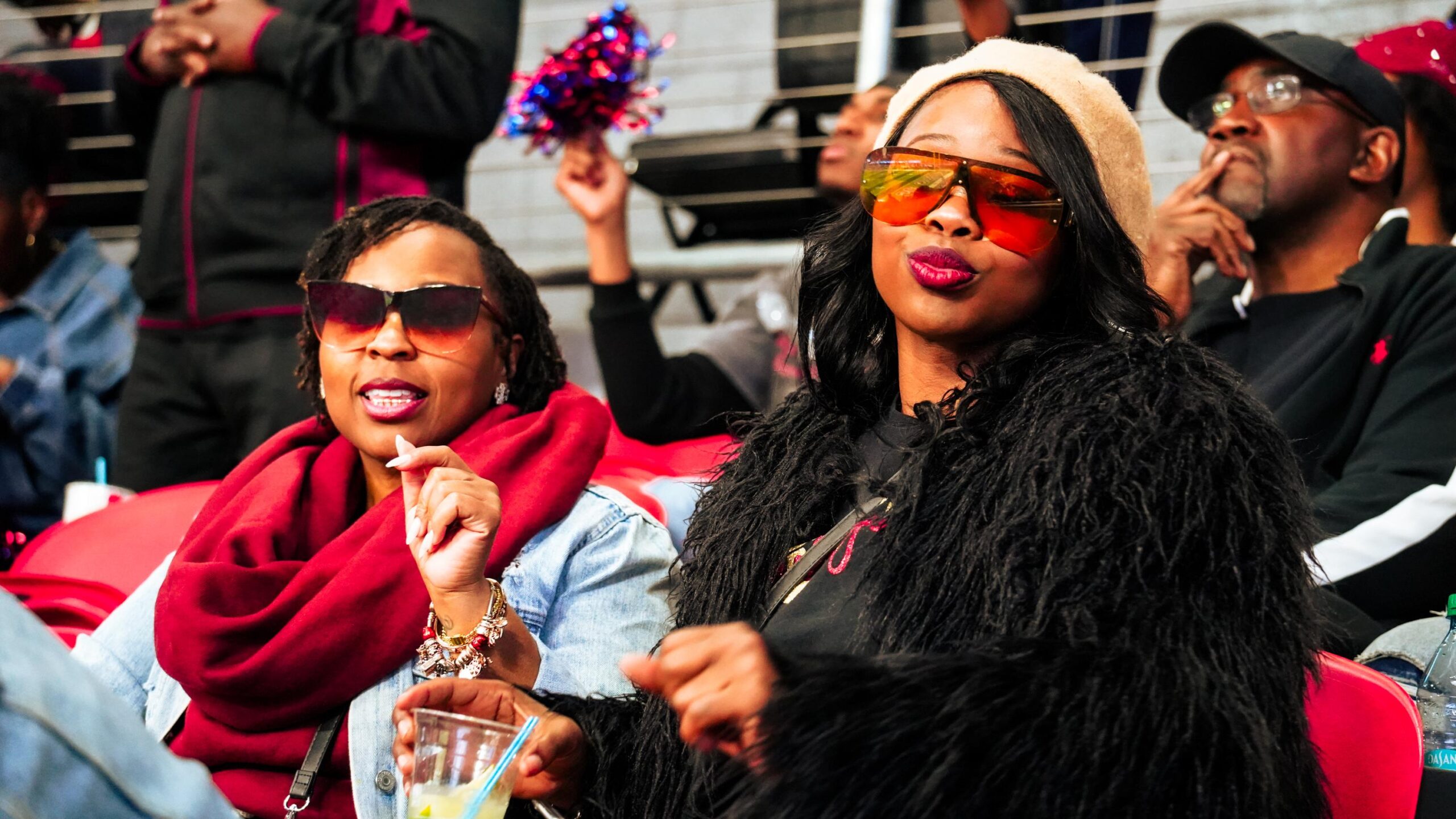
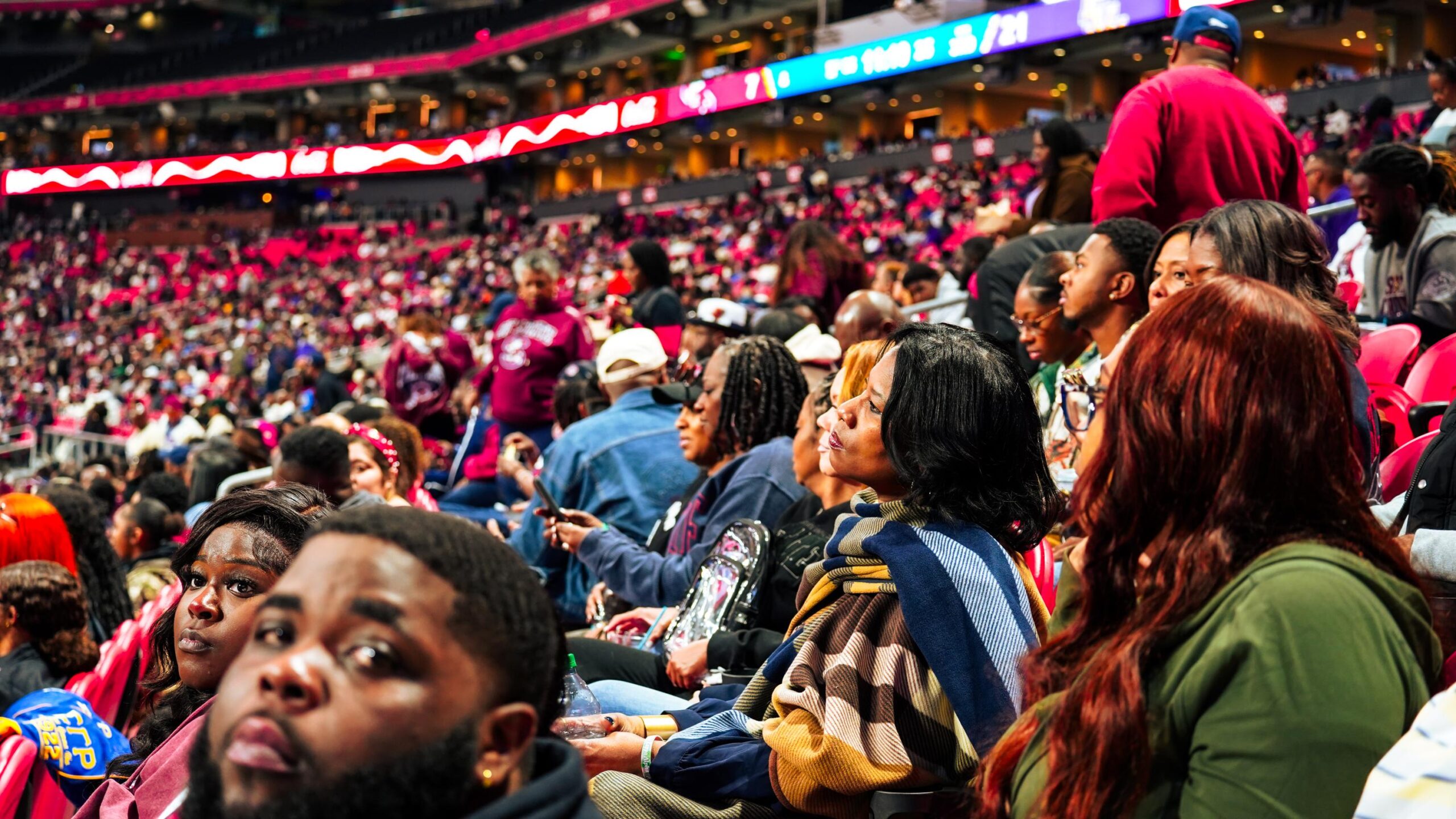
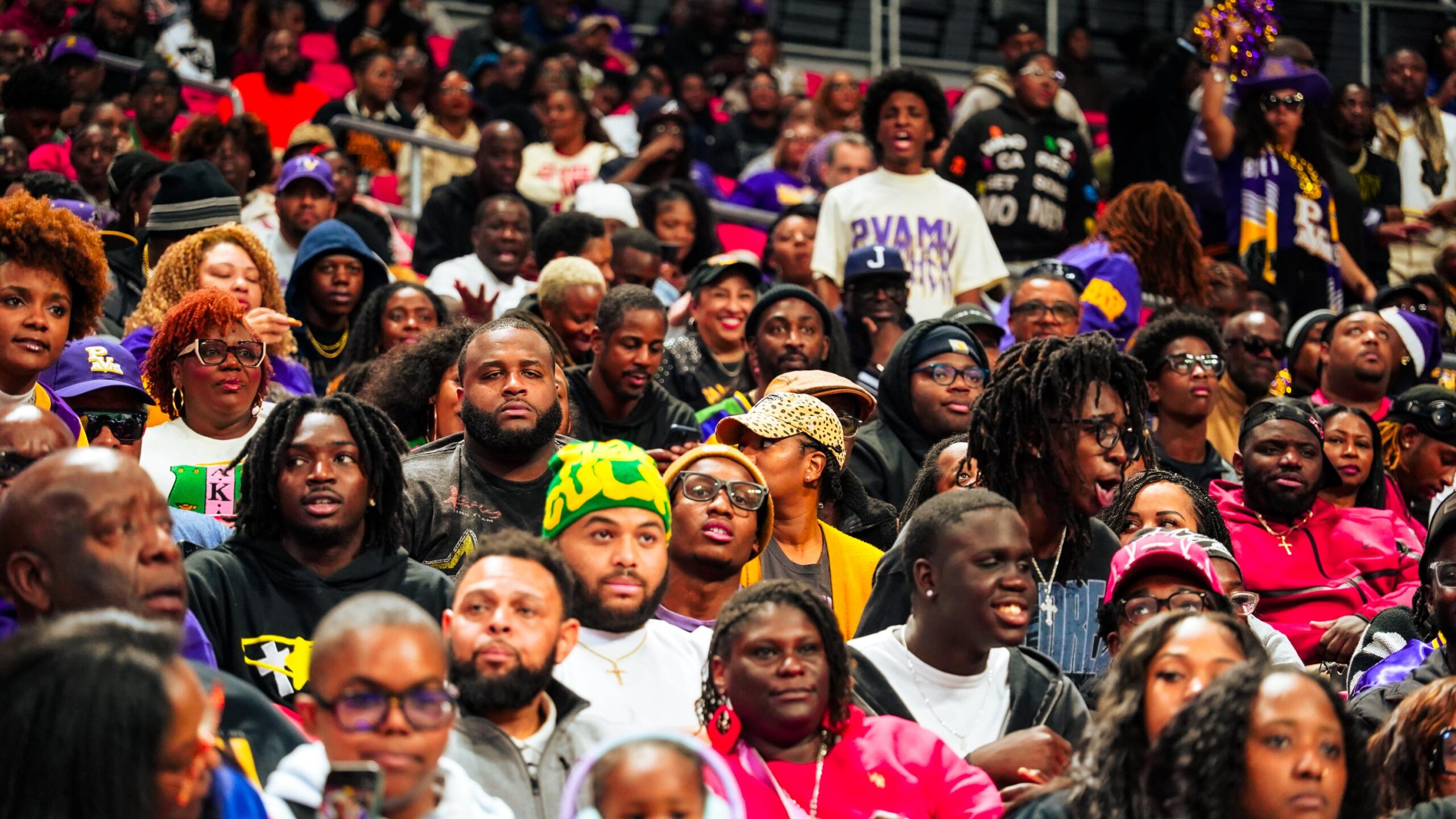

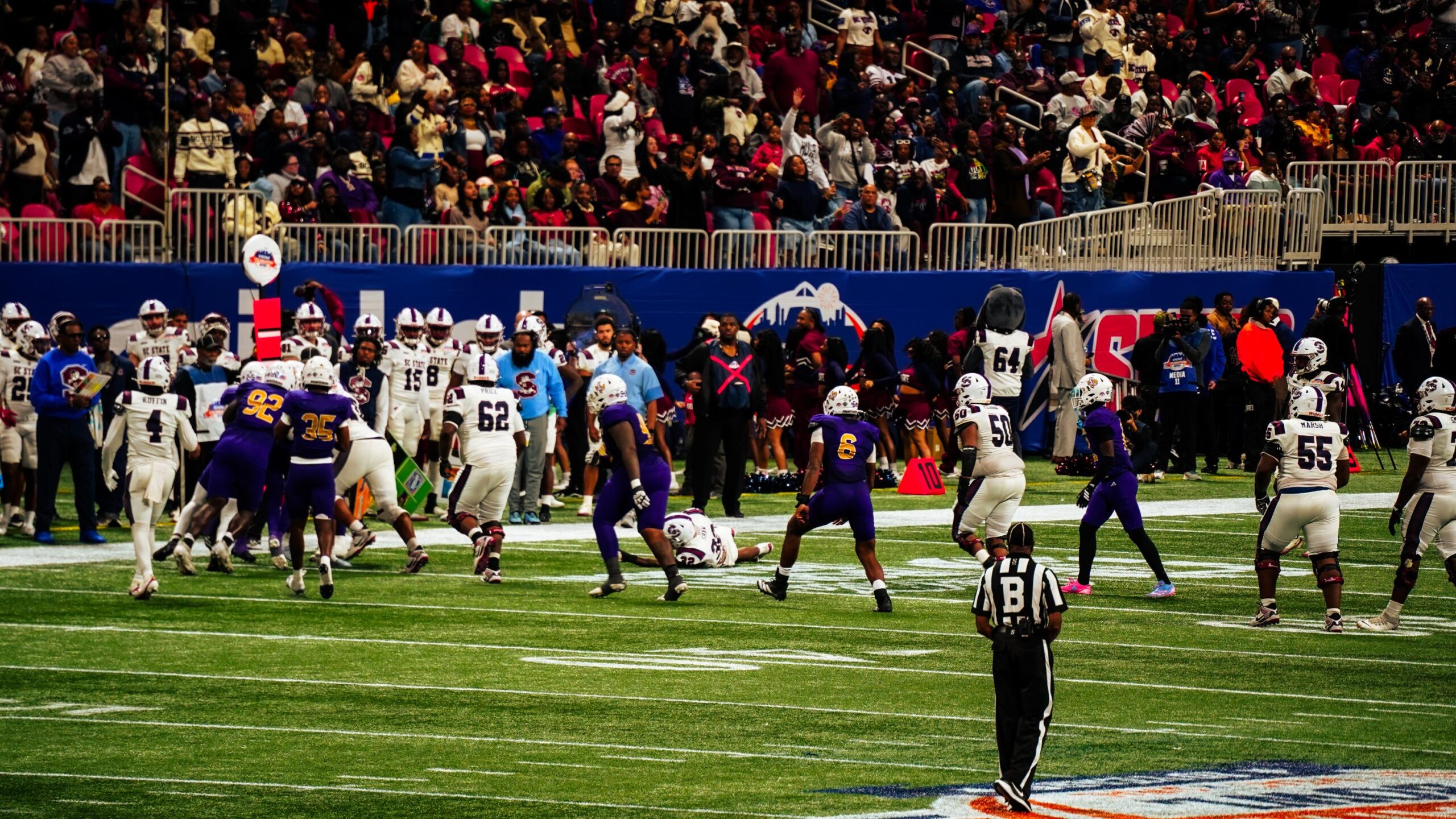
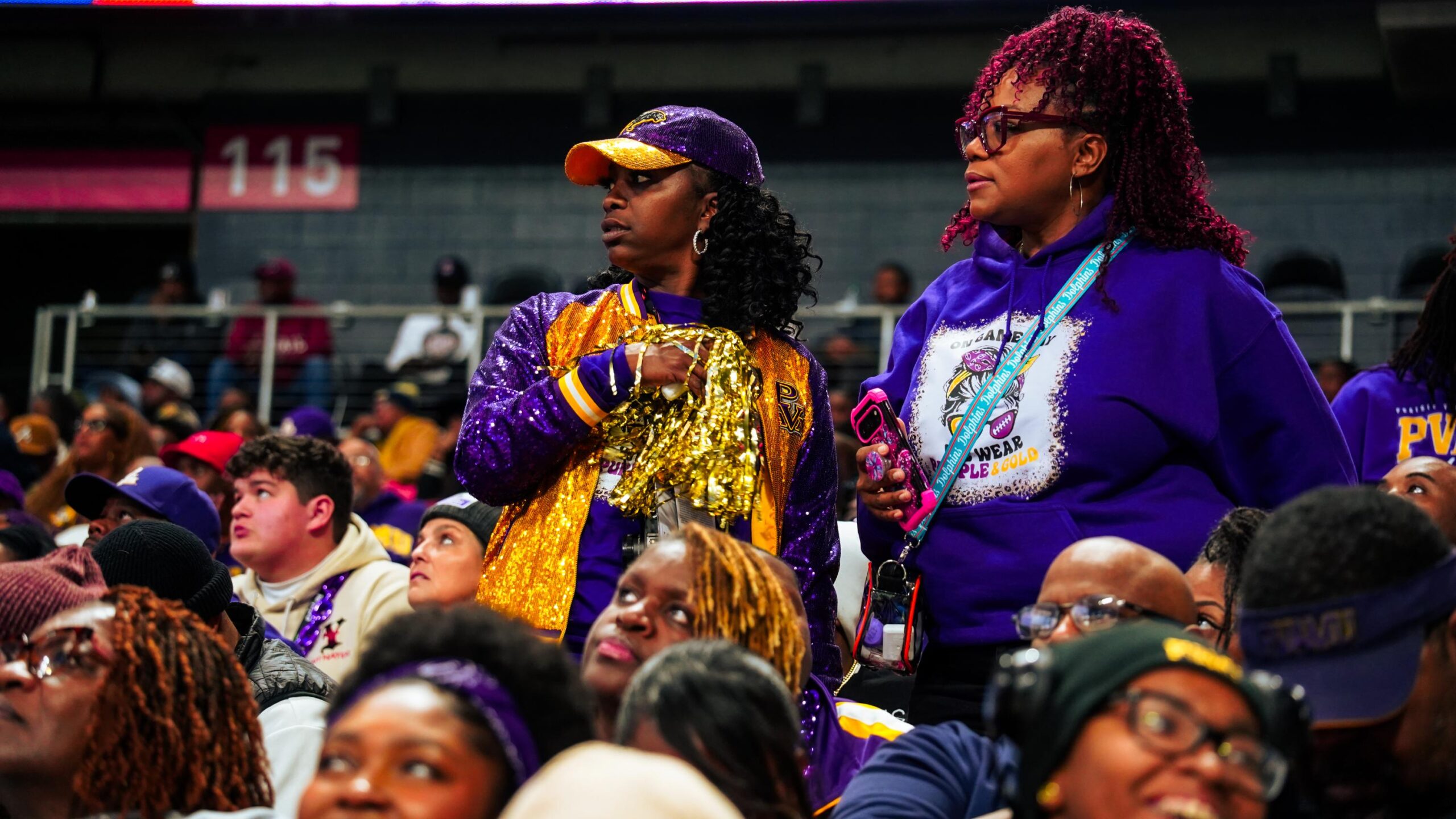
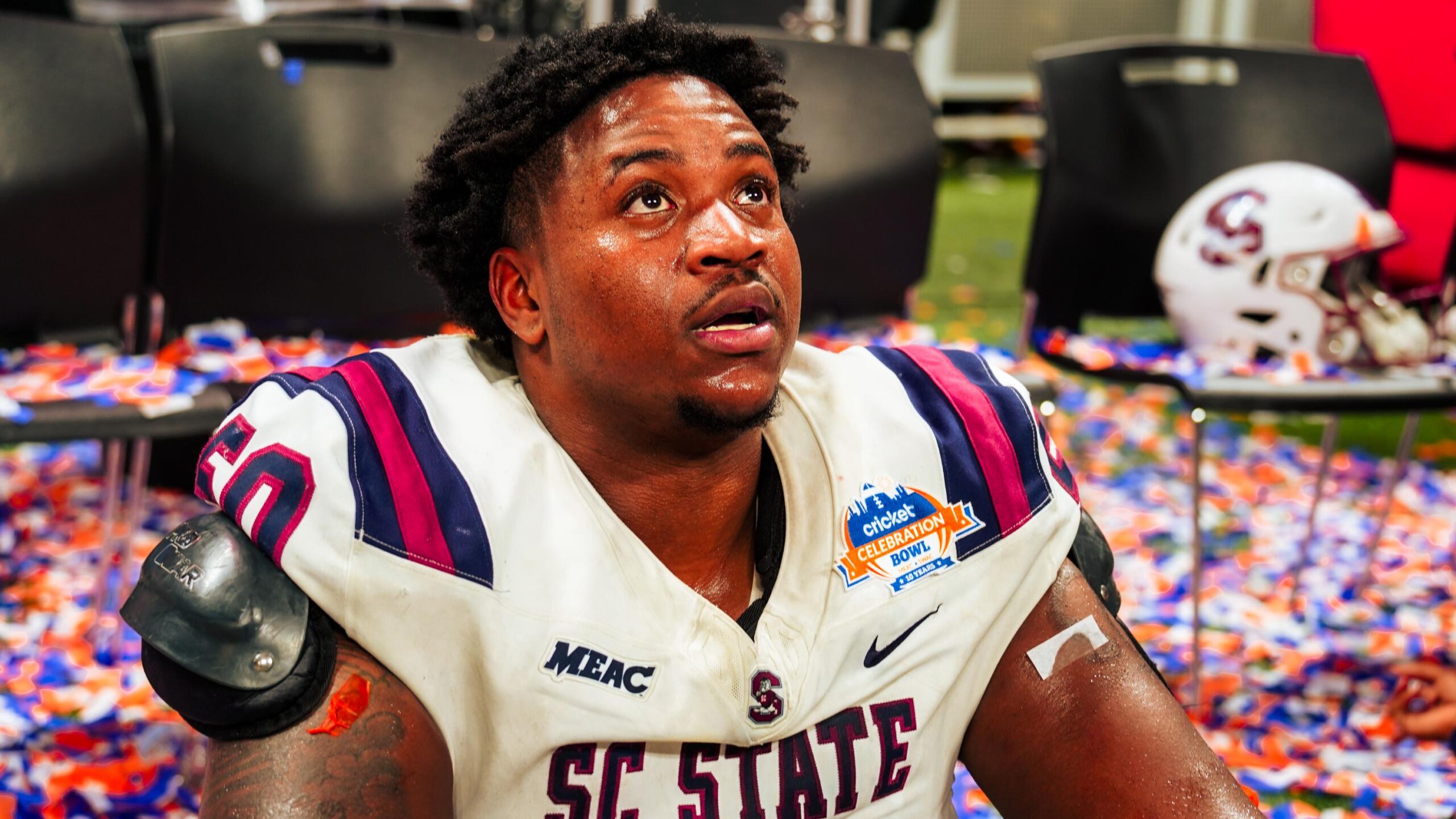
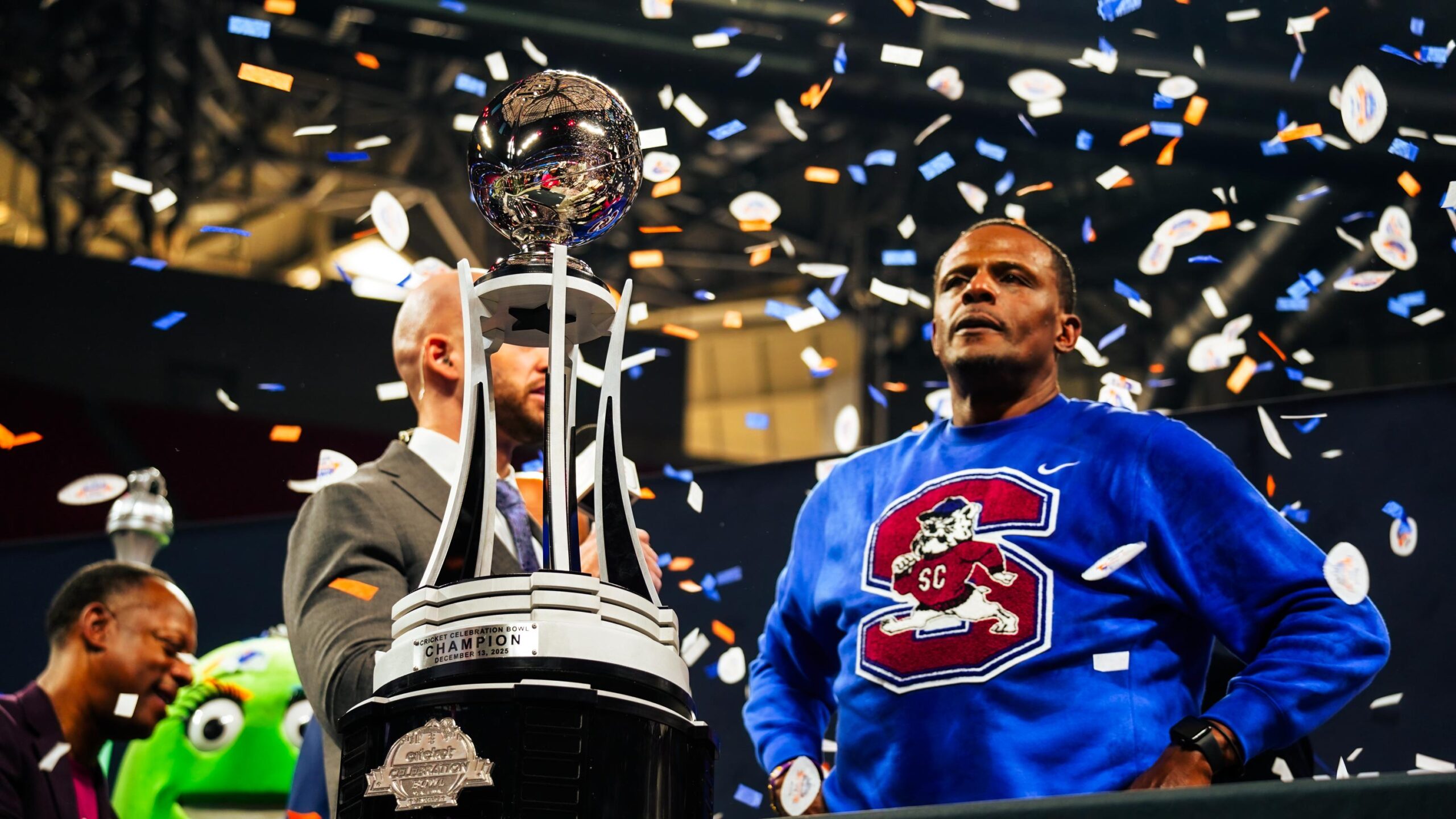

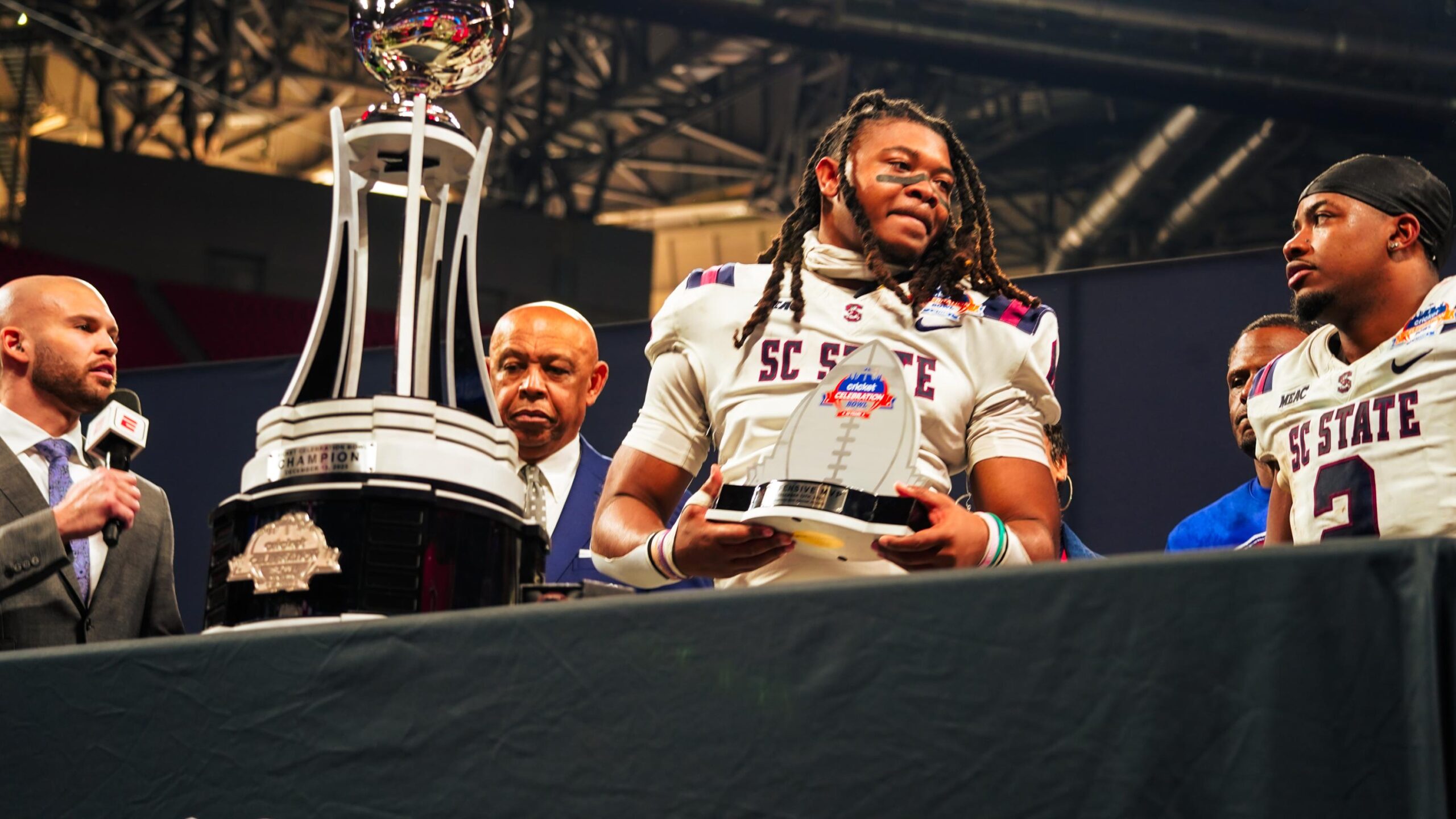
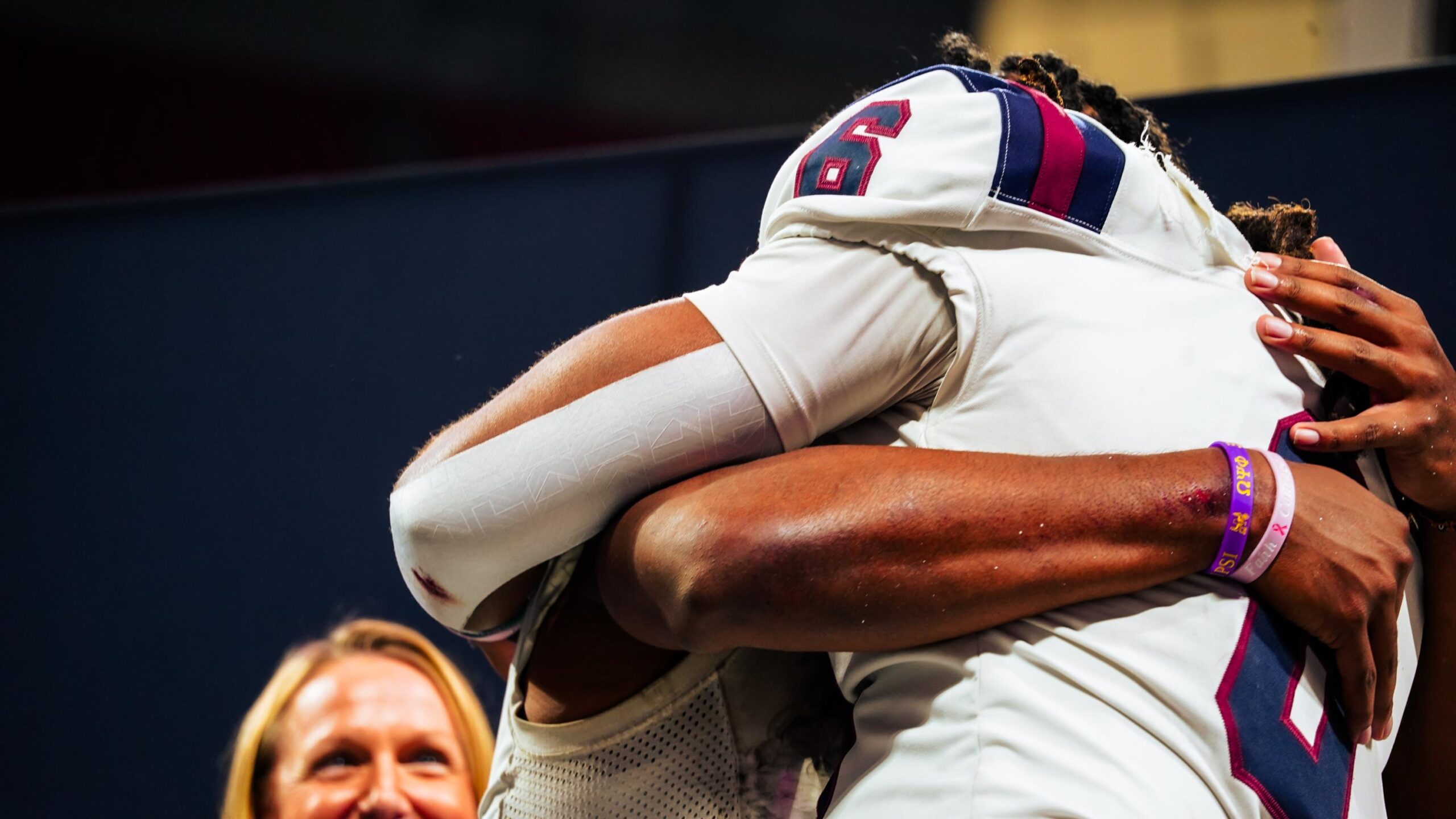
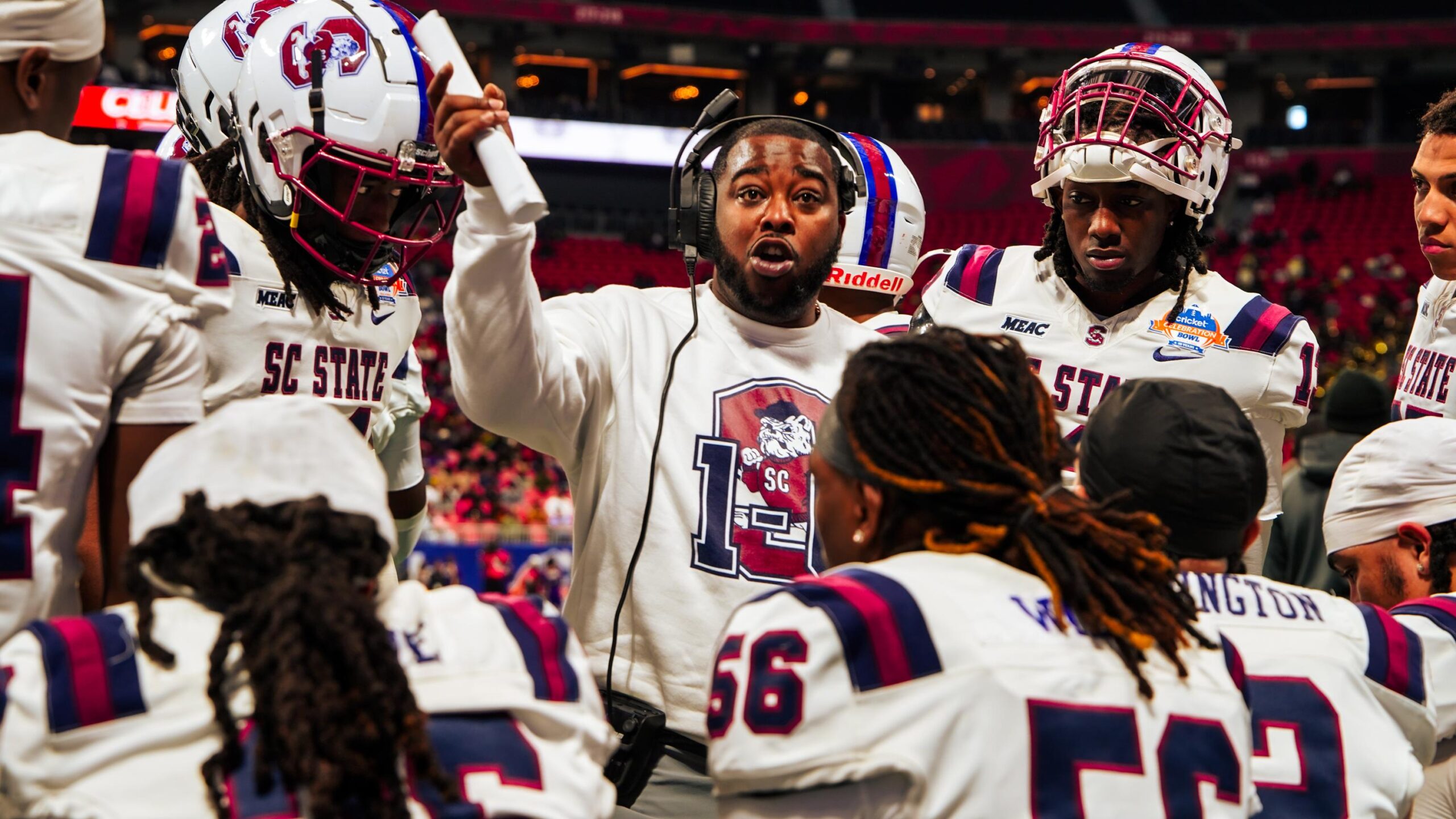
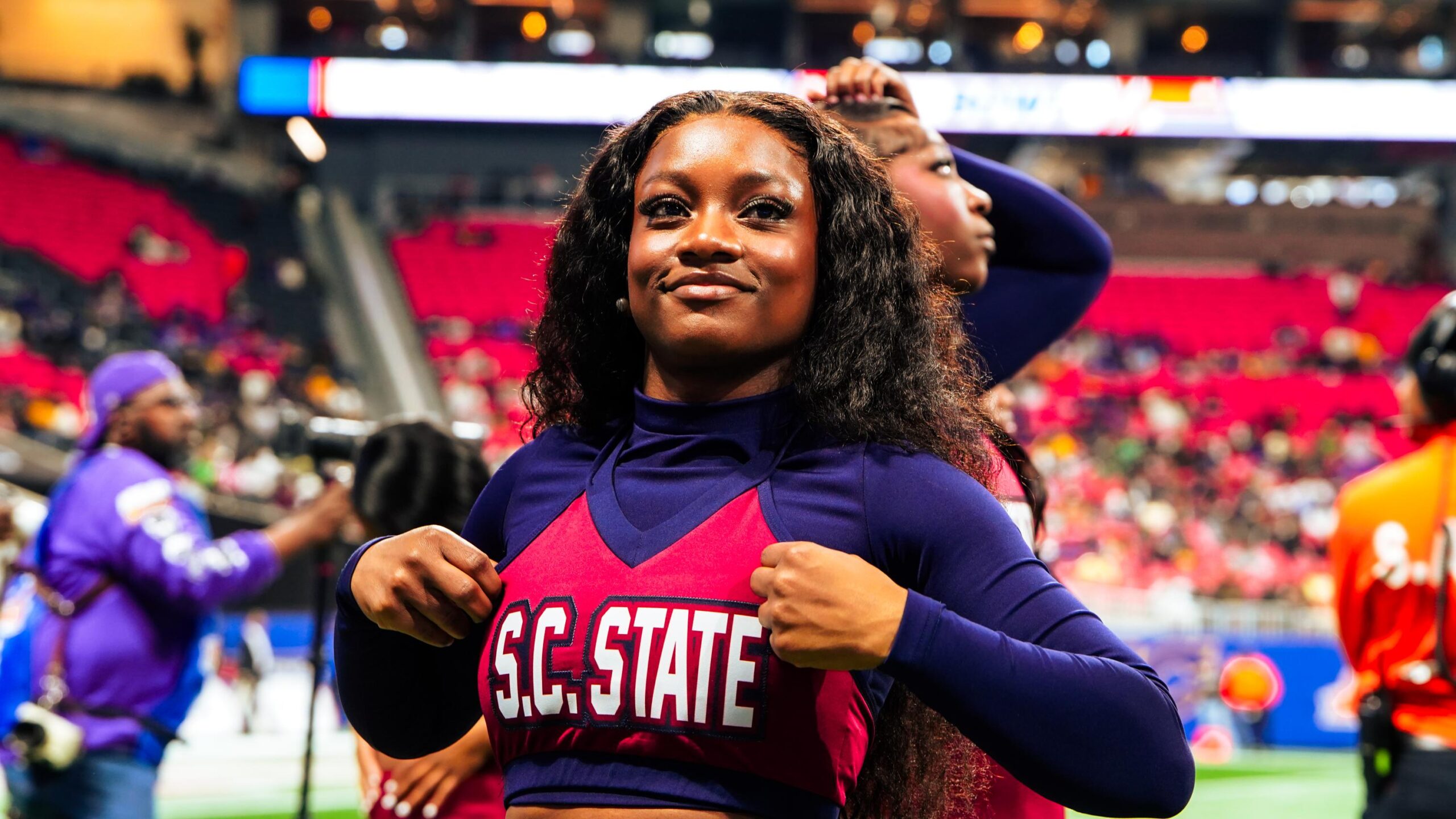
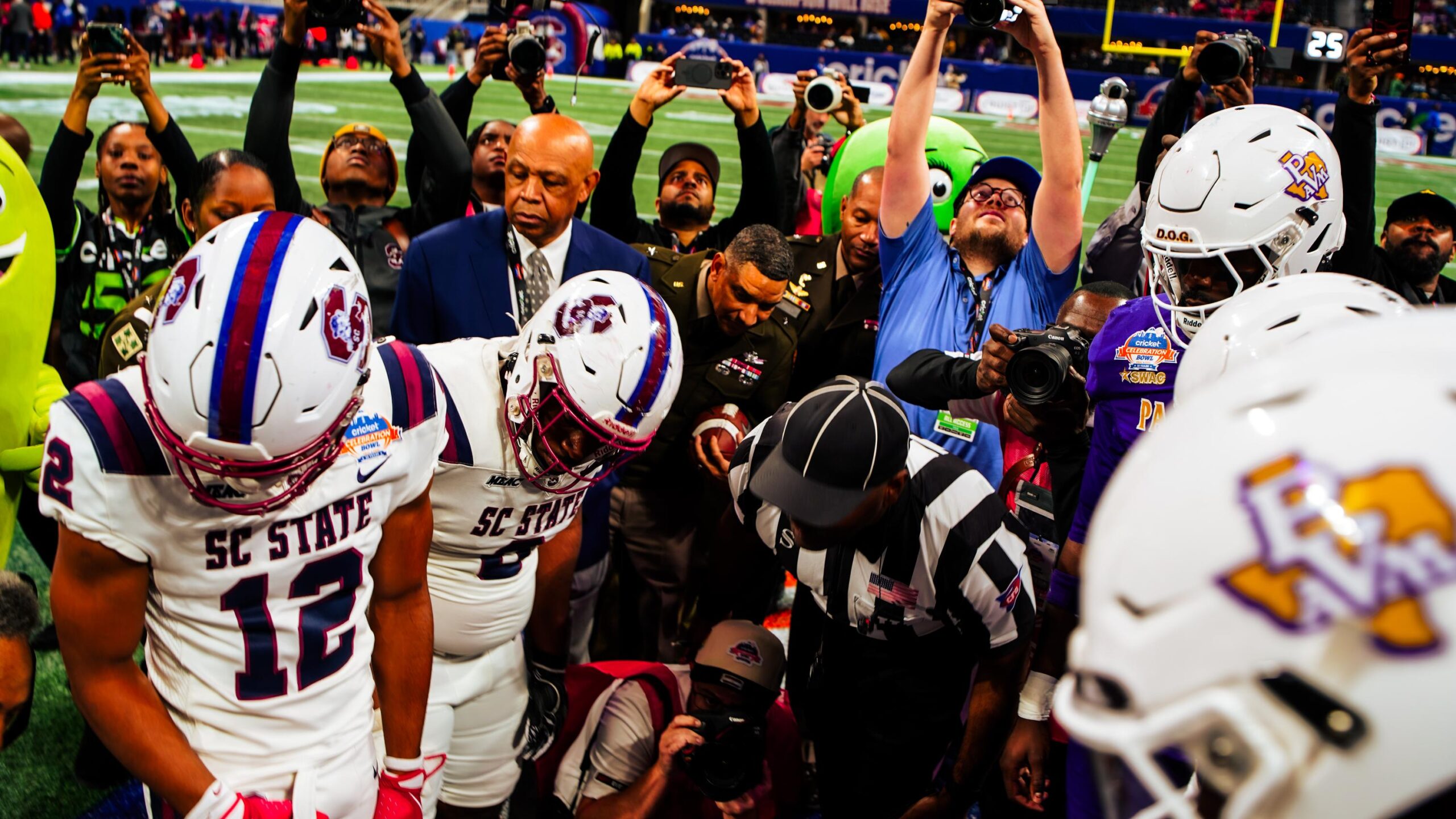
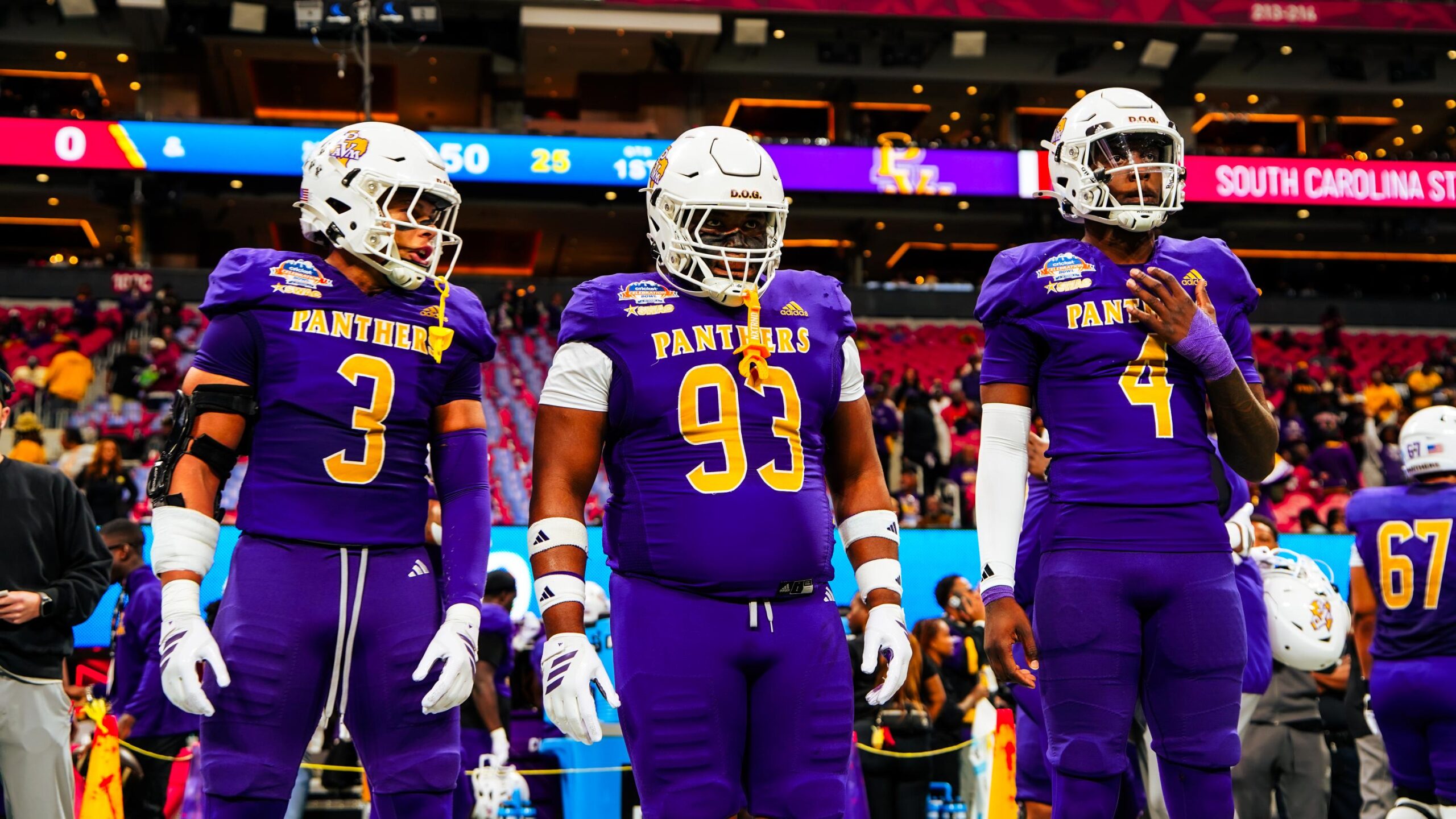
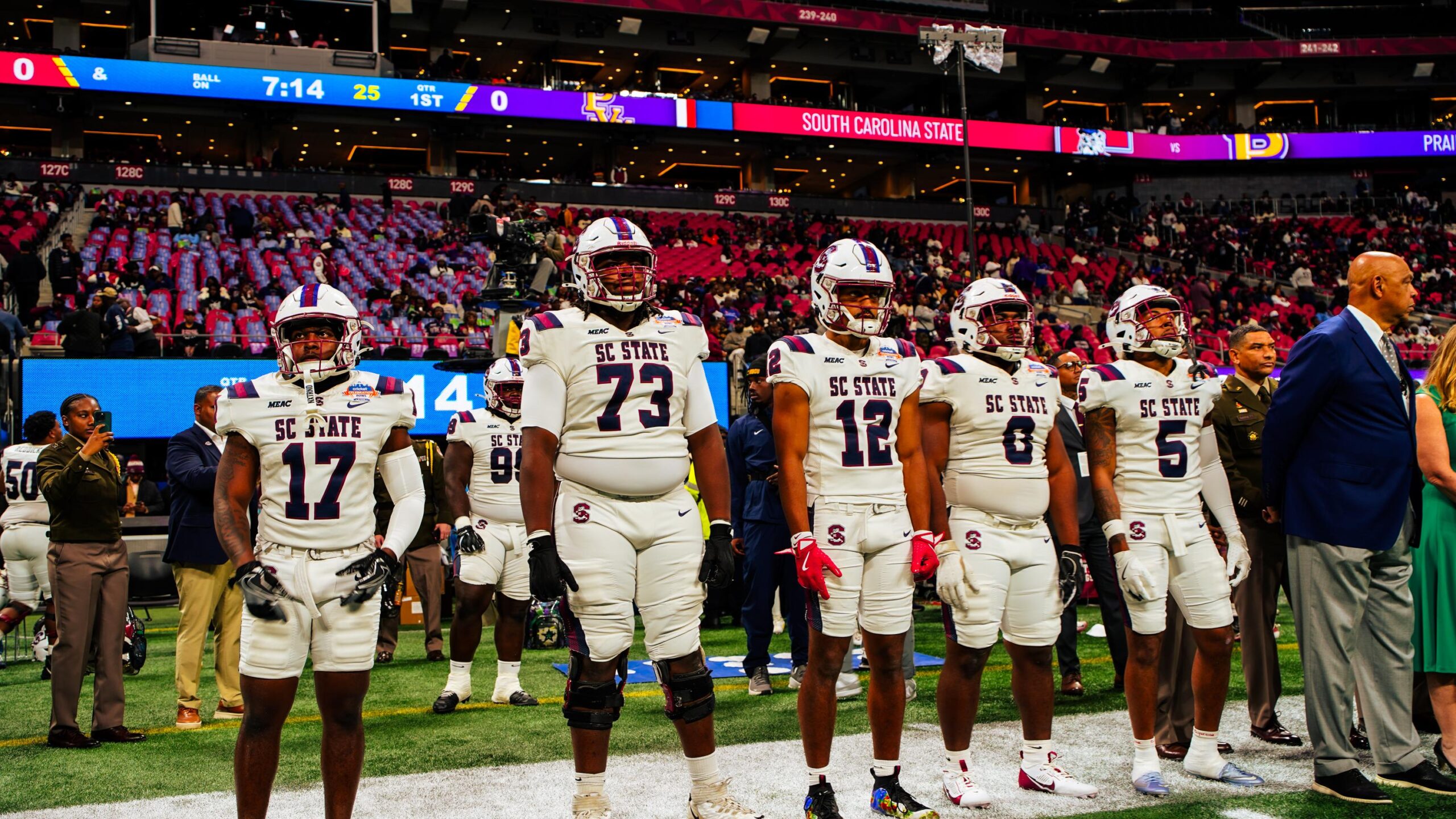

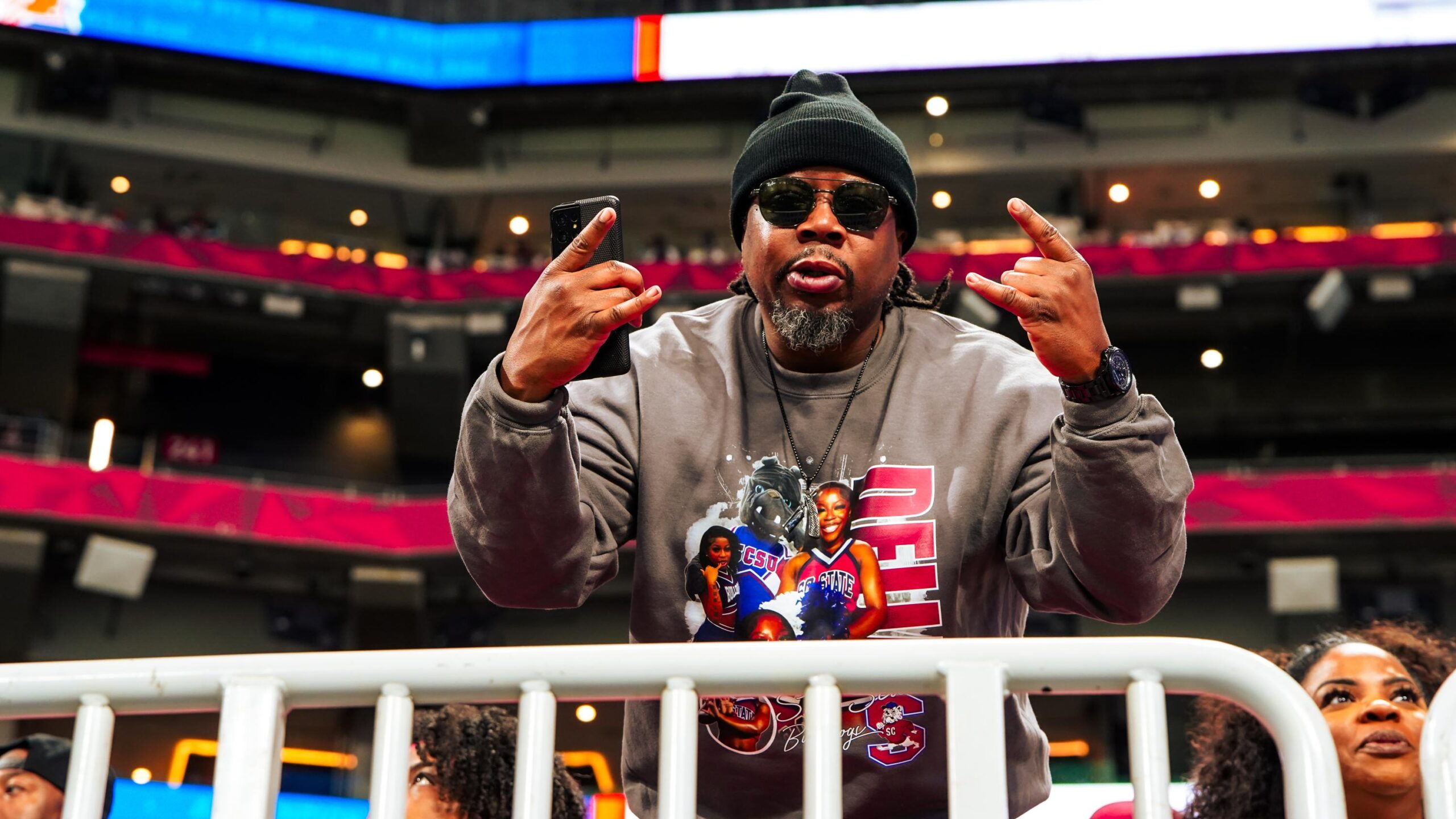
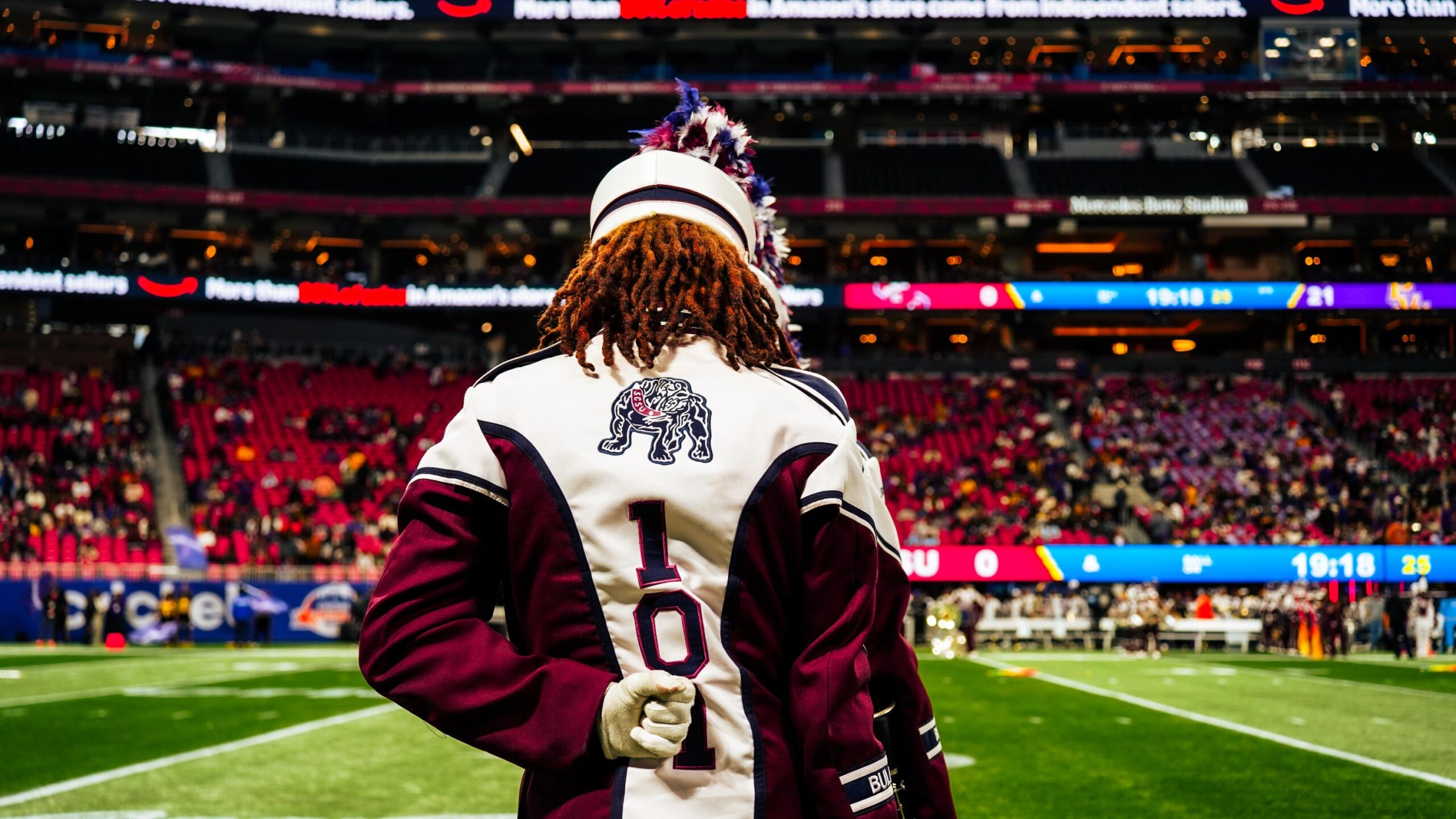
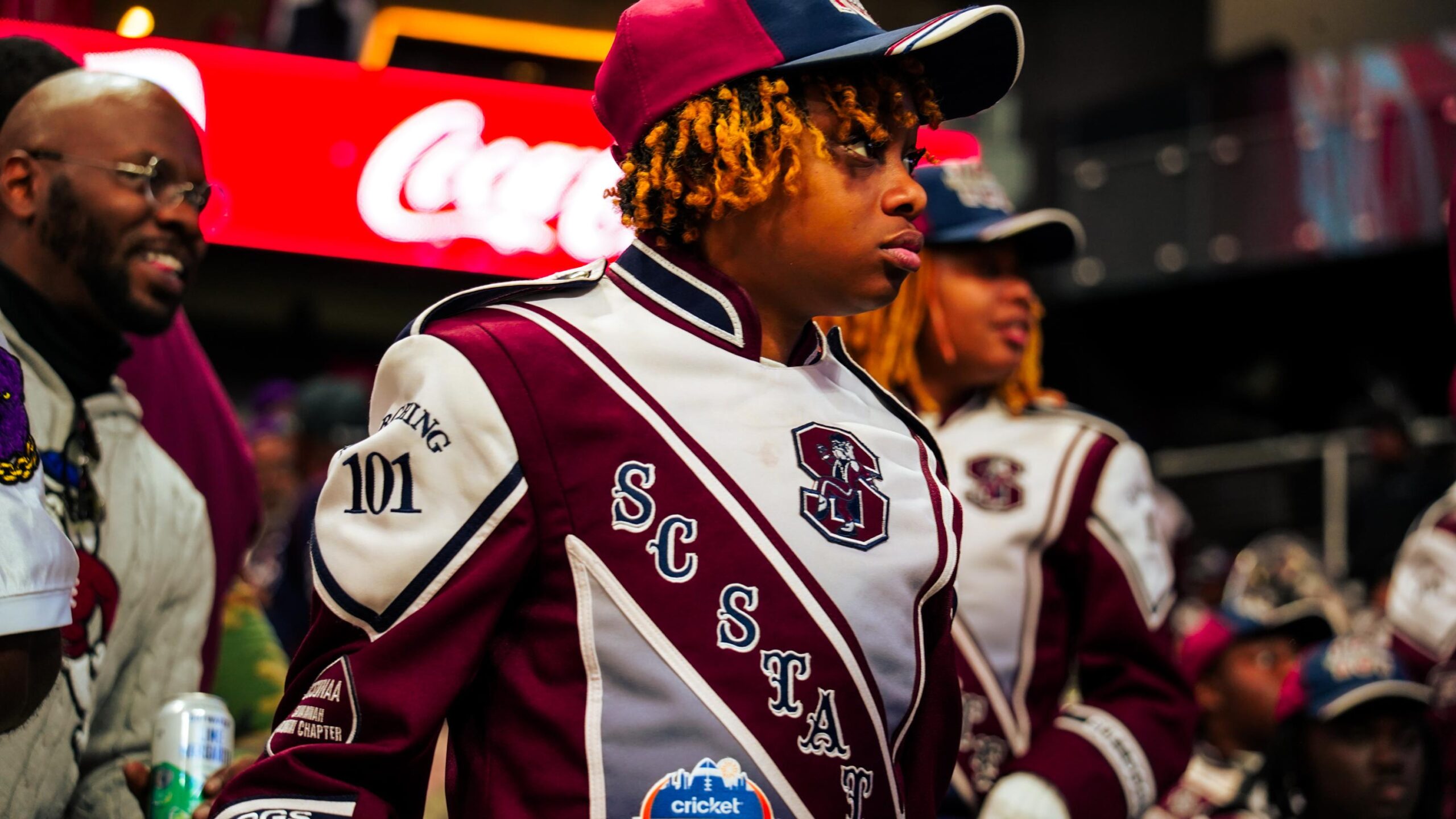

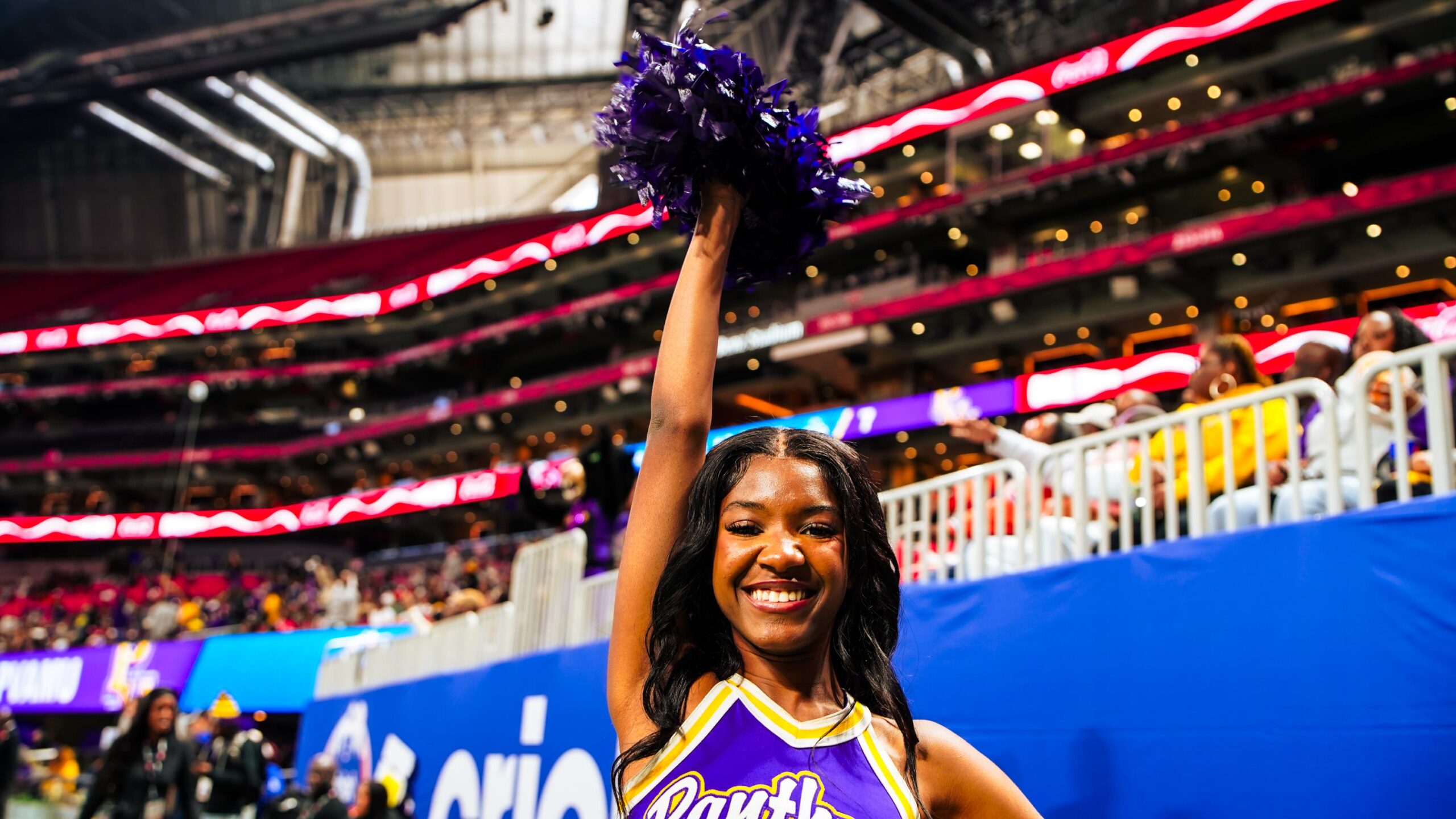
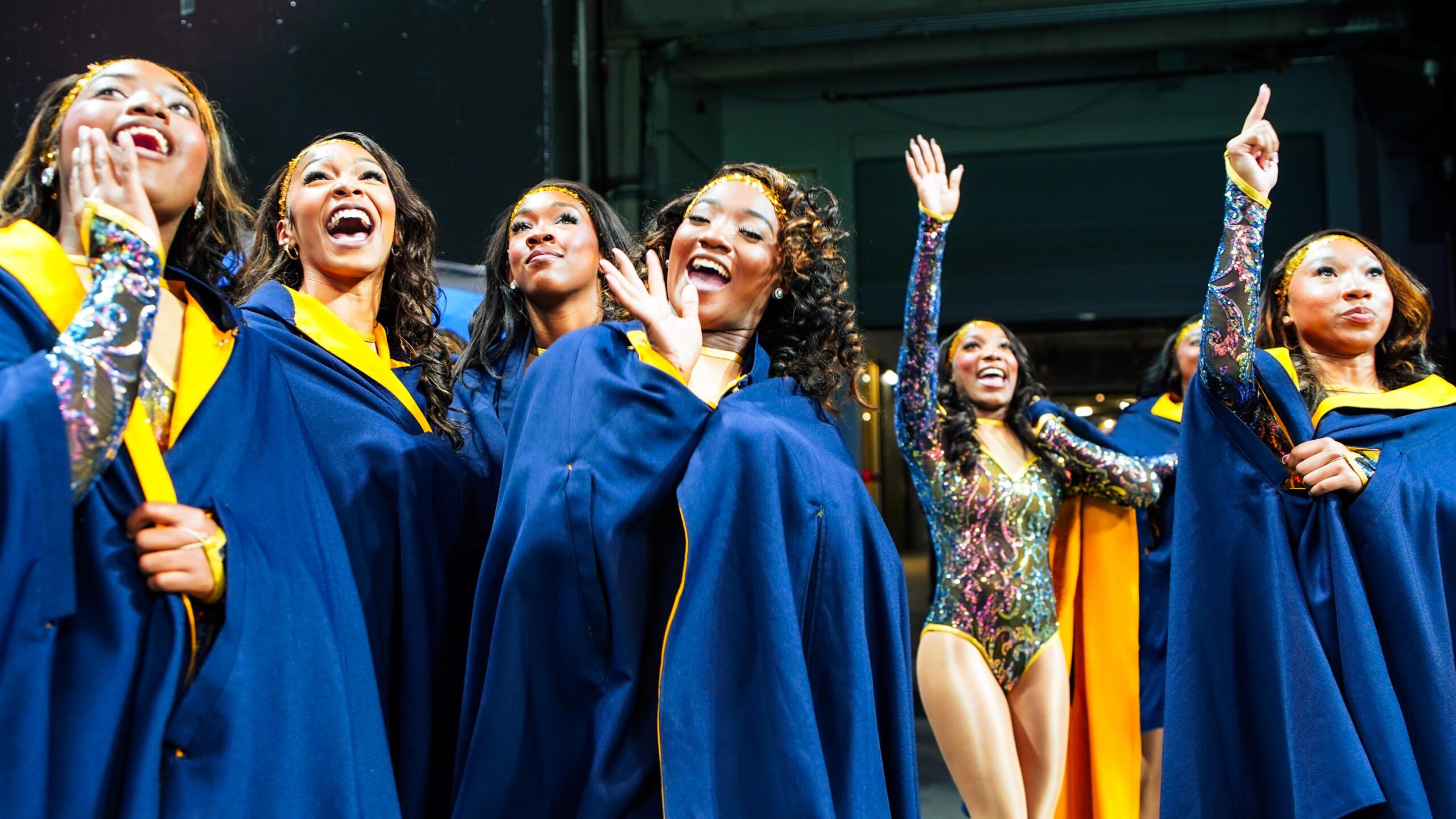
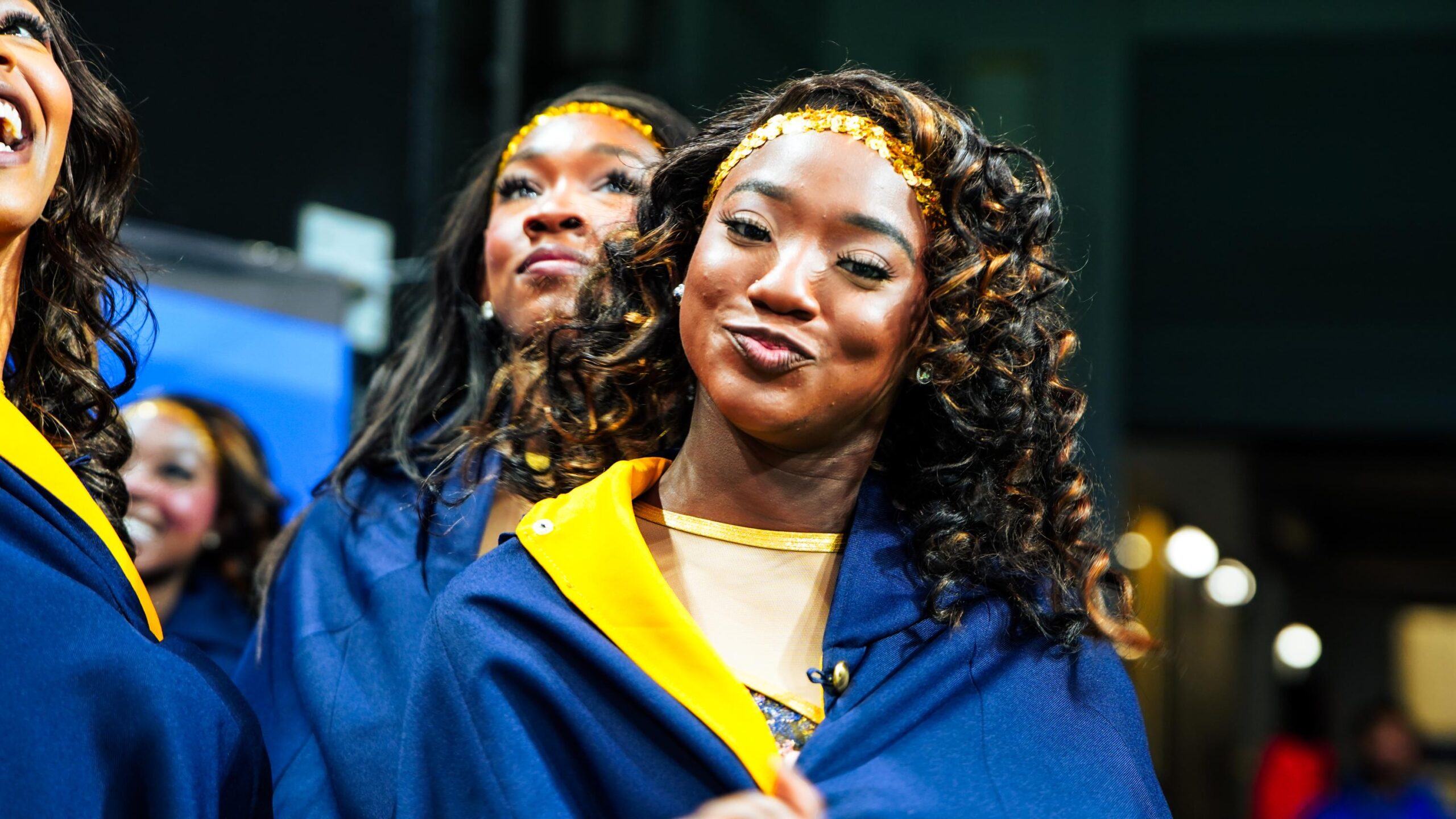
HBCU ORIGINAL
Coppin State Shows Growth in Road Challenge at Saint Joseph’s
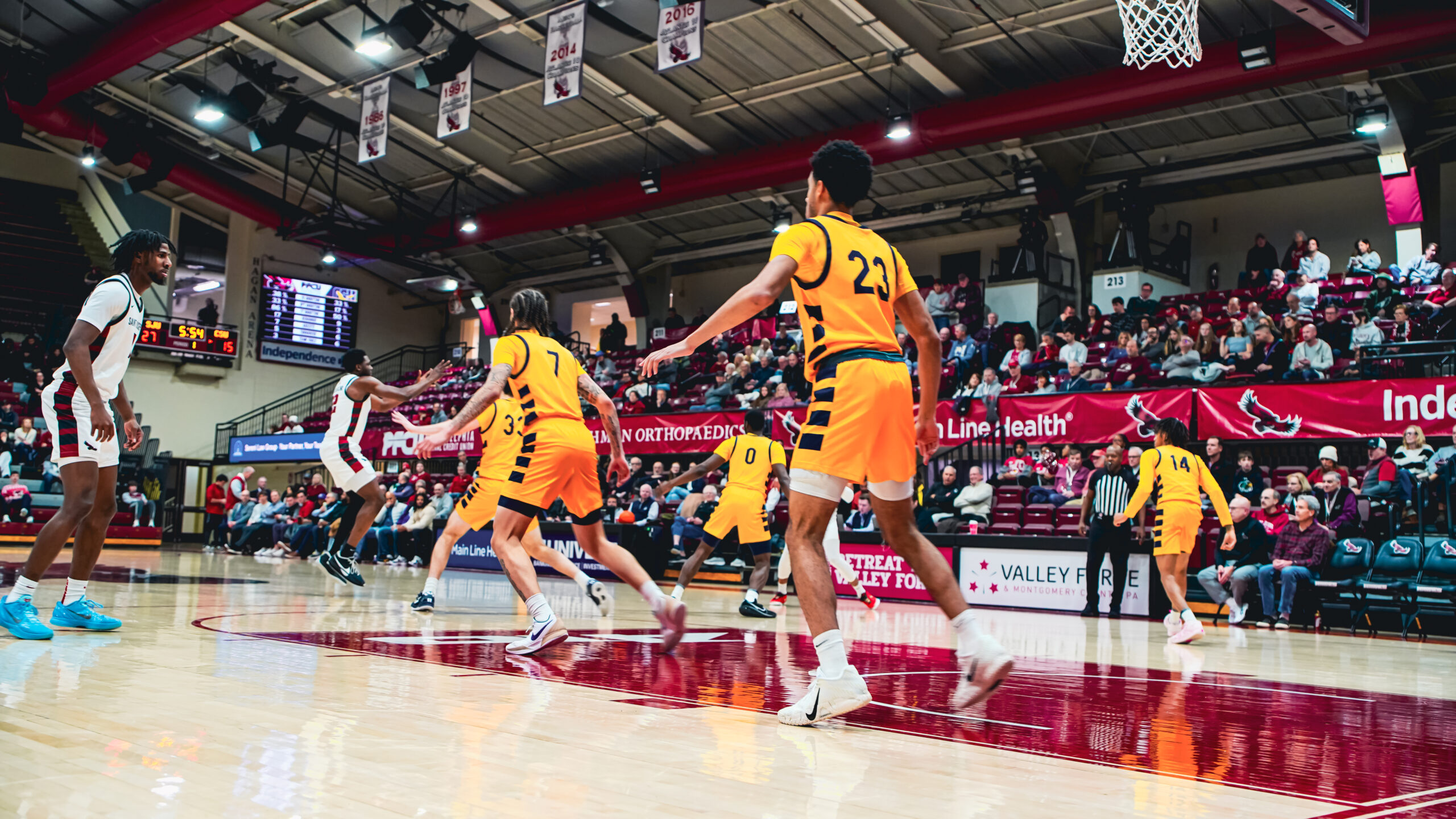
PHILADELPHIA, PA — December 9, 2025.
In front of 1,694 fans inside the Michael J. Hagan ’85 Arena, Coppin State stepped into a tough non-conference road test against a red-hot Saint Joseph’s squad. The Eagles competed with grit and energy throughout the night but ultimately fell, 87–65, as SJU extended its win streak.
For a Coppin team continuing to build chemistry and identity, the night was filled with individual bright spots and a strong showing from the bench.
Strong Individual Performances Highlight Coppin’s Fight
⭐ Nelson Lamizana Sets the Tone
Junior forward Nelson Lamizana delivered a team-high 13 points on 6-of-12 shooting, adding 5 rebounds and 4 assists. His versatility sparked Coppin early and kept the Eagles within reach during key stretches.
🔥 Tyler Koenig Continues His Rise
Koenig added 11 points, battling in the paint and knocking down all three free throws. He also grabbed 4 rebounds and provided steady interior presence.
💪 Bench Brings Energy: 29 Points
Coppin State’s bench was a major bright spot, contributing a strong 29 points:
-
Favour Aire: 10 points, 3 rebounds, 4-for-4 at the line.
-
Hussain Williams: 7 points, including a deep three.
-
Jamari Piercy: 7 points on 3-of-4 shooting.
-
Torrin Andrews: Active defensively with 3 rebounds, 3 steals, and a three-pointer.
The Eagles shot 43.9% from the field and an impressive 84.6% at the free throw line, showing improved offensive efficiency—especially in the second half.
Game Flow: Eagles Strike First, Hawks Answer With Runs
Coppin State opened the game strong, taking a 7–4 lead in the first five minutes through tough defense and patient execution.
Saint Joseph’s responded with a 14–1 run that shifted momentum, but Coppin stayed composed and continued to attack.
A late SJU burst sent the Eagles into halftime trailing 43–26.
In the second half, Coppin State played its best basketball of the night—shooting 48% from the floor and hitting all seven free throws. The Eagles pushed the tempo, scored 32 points in the paint, and generated 12 fast break points.
Despite the Hawks maintaining a 20-point cushion, Coppin State’s growth on both ends was evident.
Saint Joseph’s Big Night
SJU was led by Jaiden Glover-Toscano’s career-high 25 points and seven threes, while the Hawks’ ball movement (22 assists on 26 baskets) and free-throw shooting (21-of-24) helped them stay in control.
Justice Ajogbor’s 10 points and 7 boards were boosted by a historic milestone—his 200th career block, placing him among Division I’s elite rim protectors.
Coppin State Team Stats Snapshot
-
65 Points
-
43.9% FG (25–57)
-
22.2% 3PT (4–18)
-
84.6% FT (11–13)
-
26 Rebounds
-
29 Bench Points
-
10 Points Off Turnovers
-
32 Points in the Paint
-
12 Fast Break Points
The Eagles tied the game once early and held the lead briefly before SJU’s offense found rhythm.
Looking Ahead
With MEAC play ahead, this matchup served as valuable preparation for Coppin State. The Eagles showed promise—especially from their young bench—and continue to grow with every outing.
Expect this team to make noise when conference battles begin.
Coppin’s effort, energy, and improving chemistry were on full display in Philadelphia.
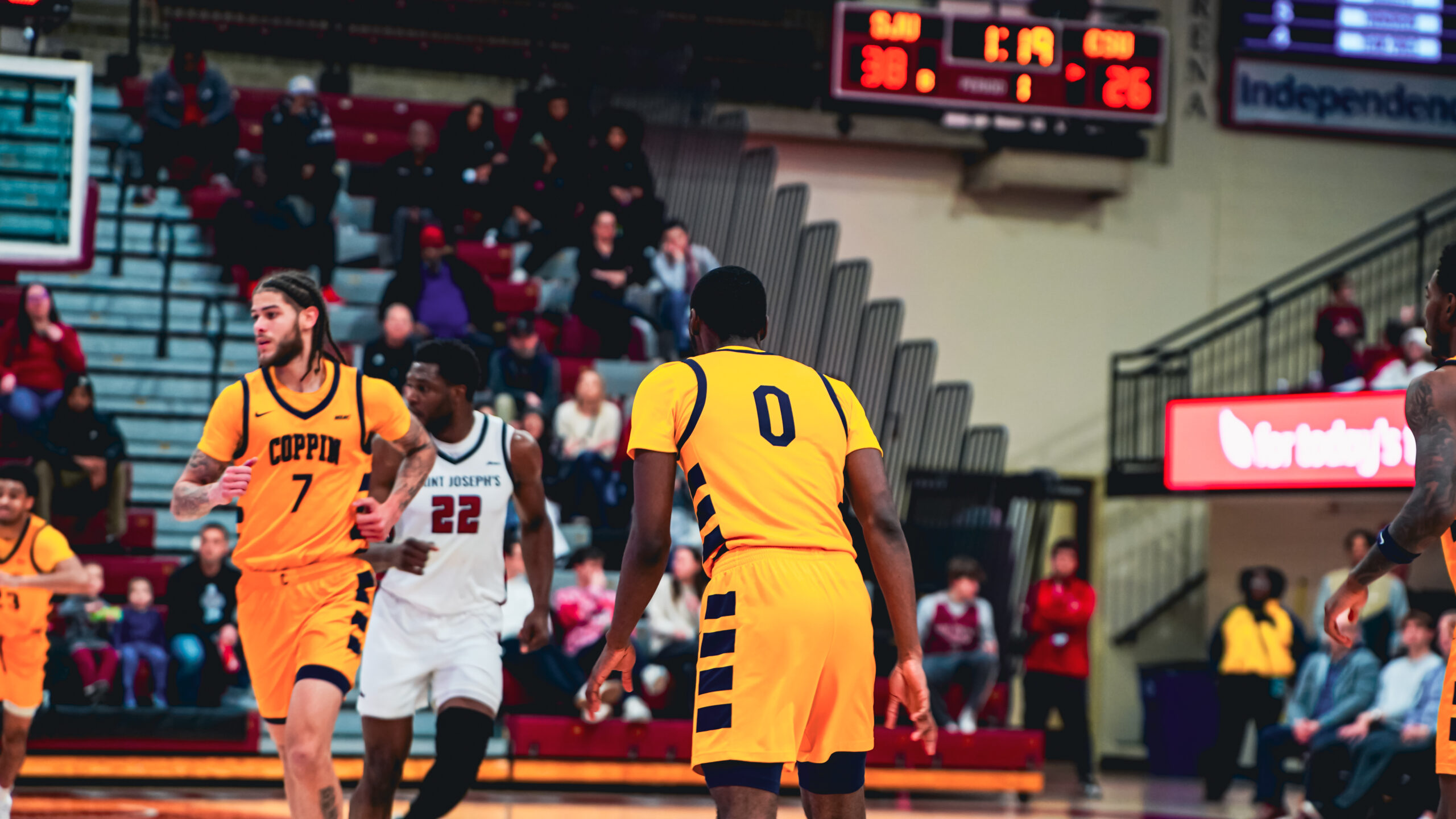
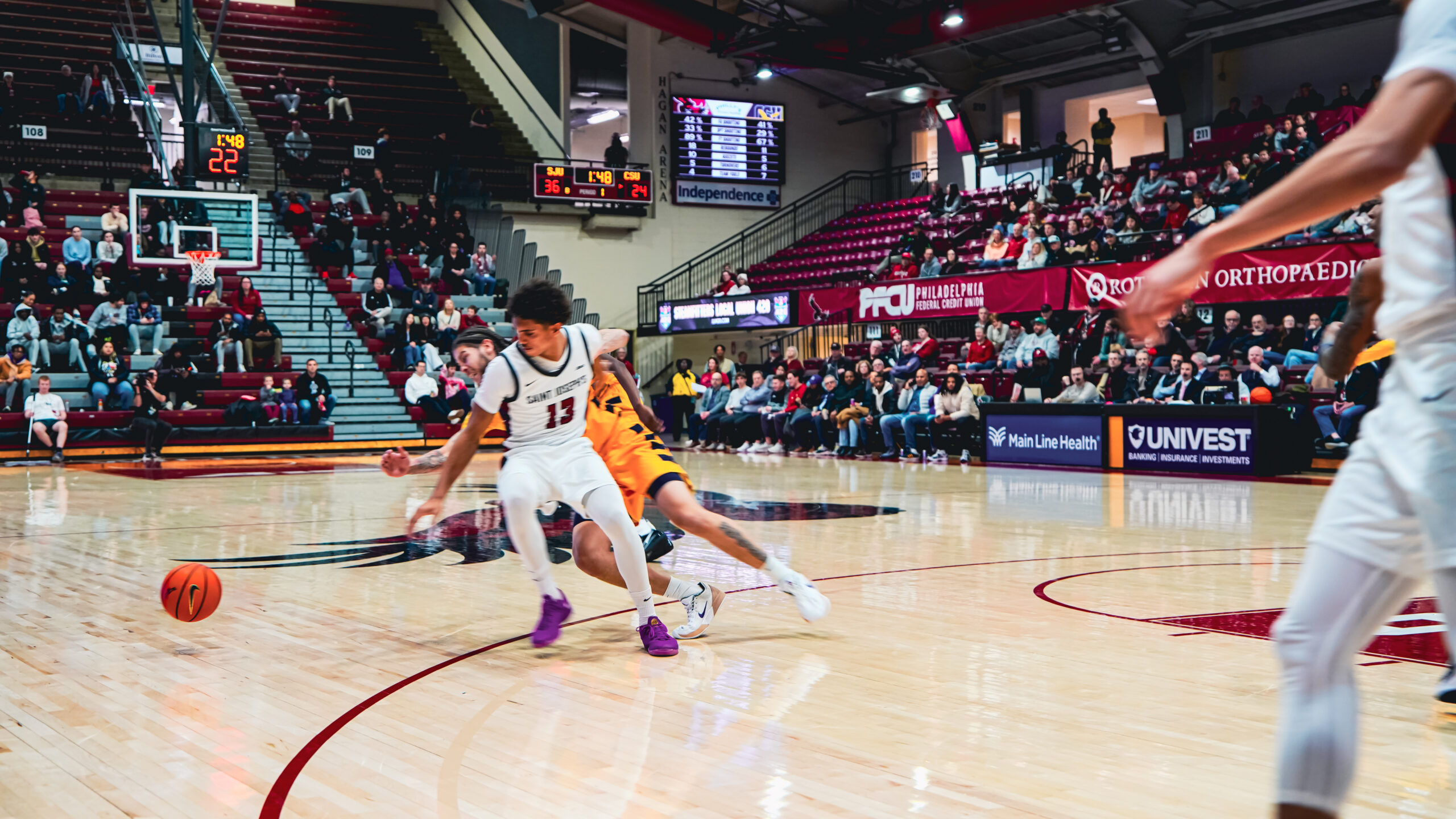
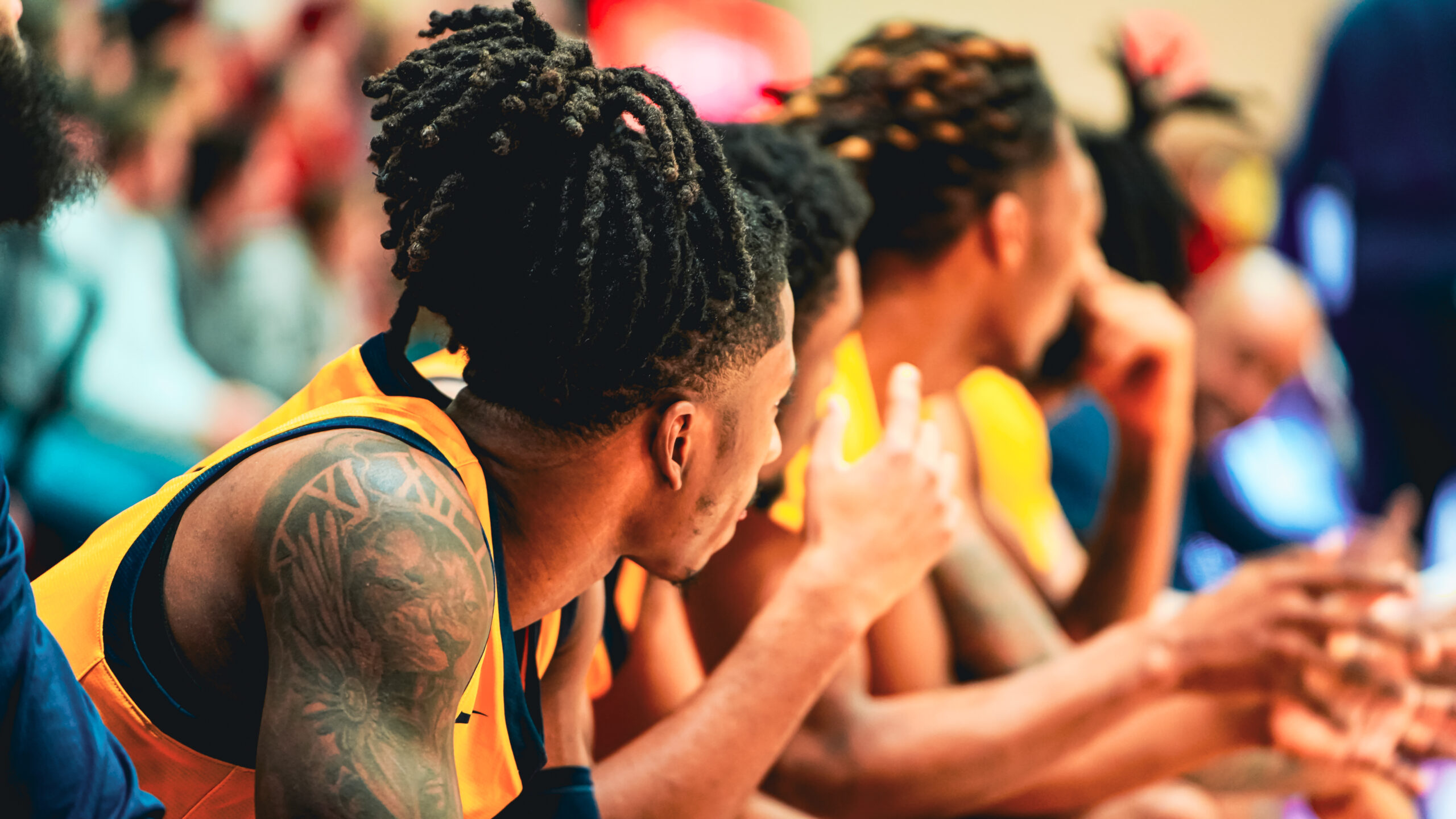
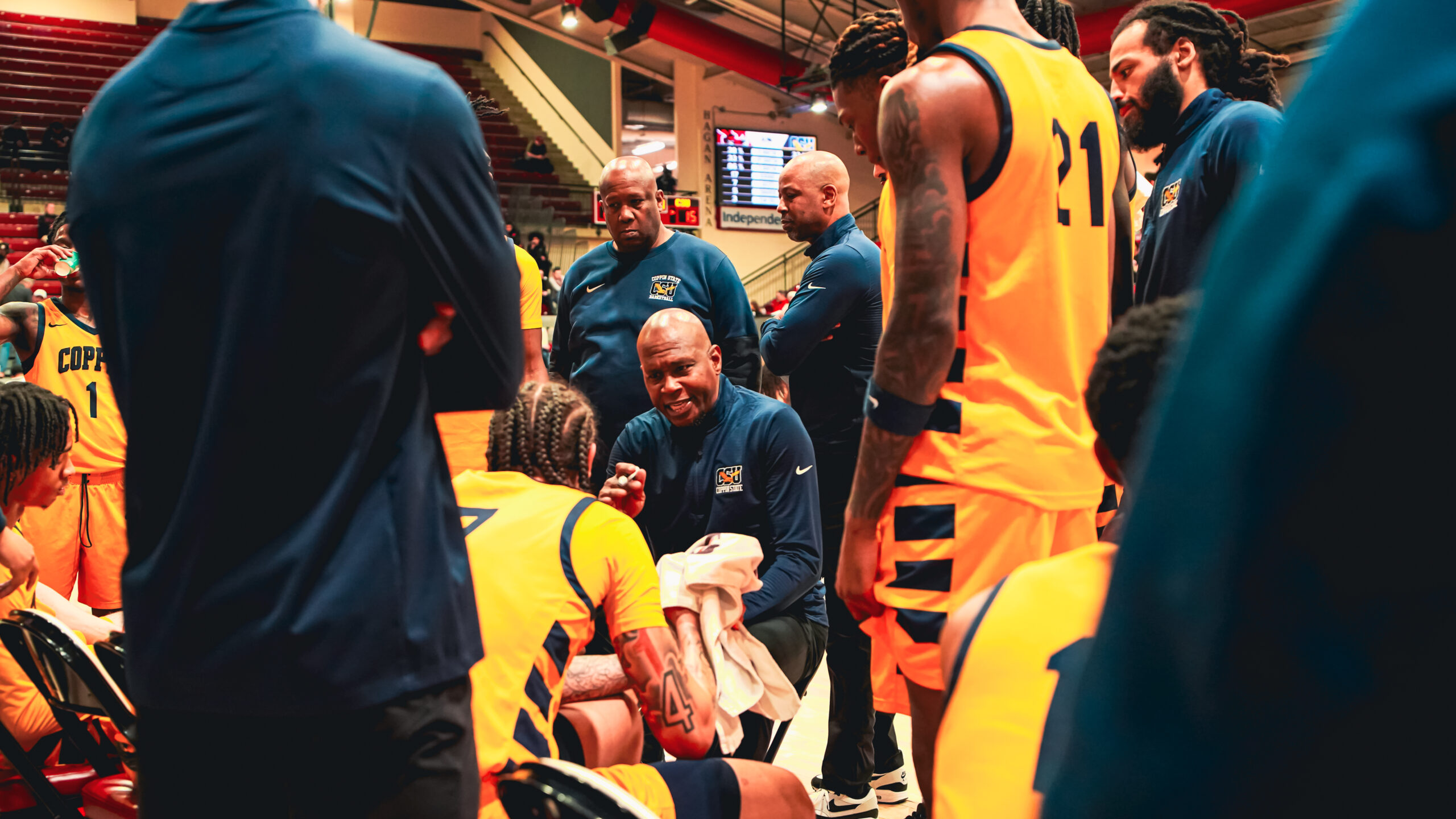

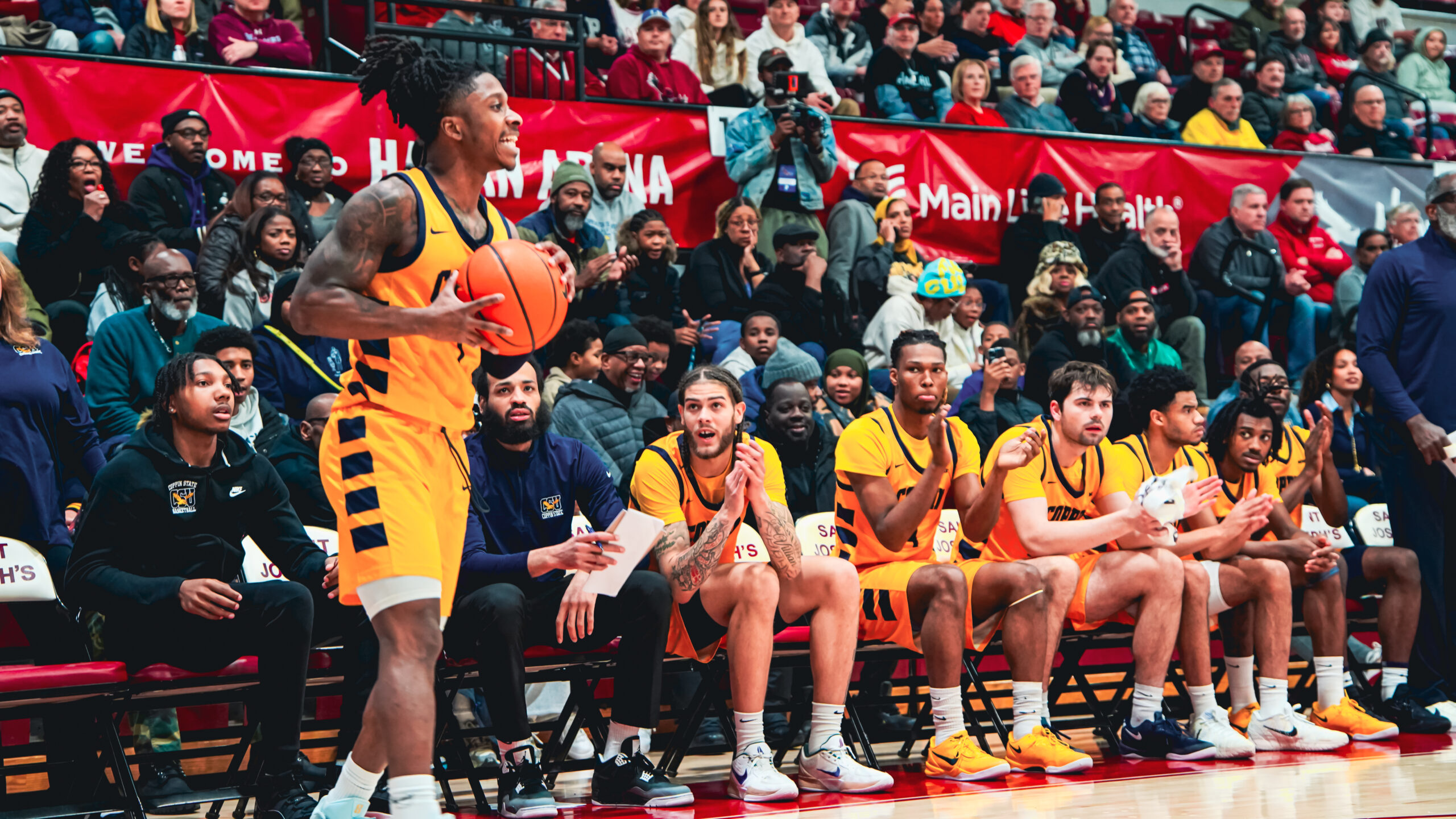
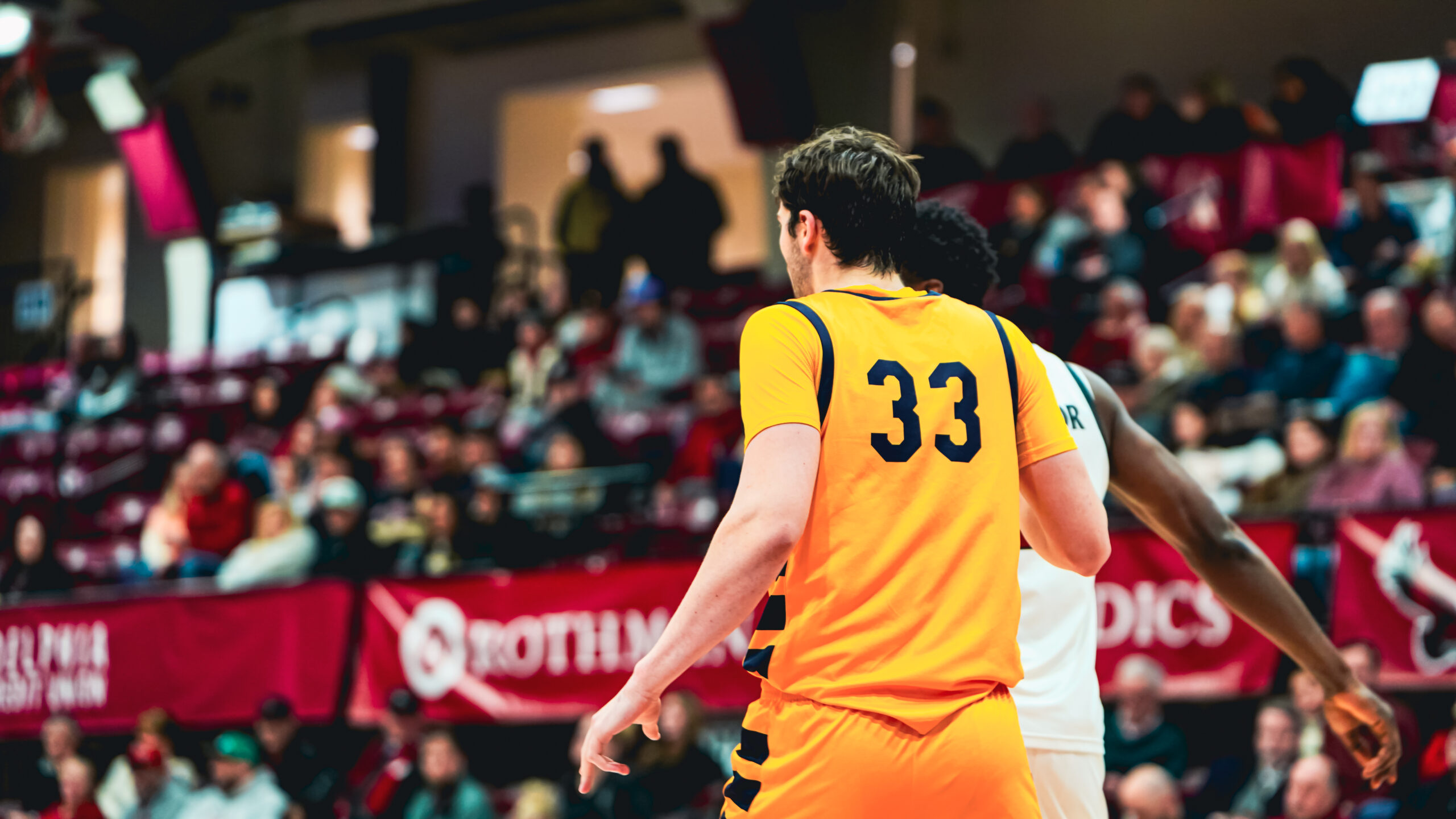
HBCU ORIGINAL
Lincoln Lions Outlast Cheyney in a Back-and-Forth Battle at the Chase Fieldhouse
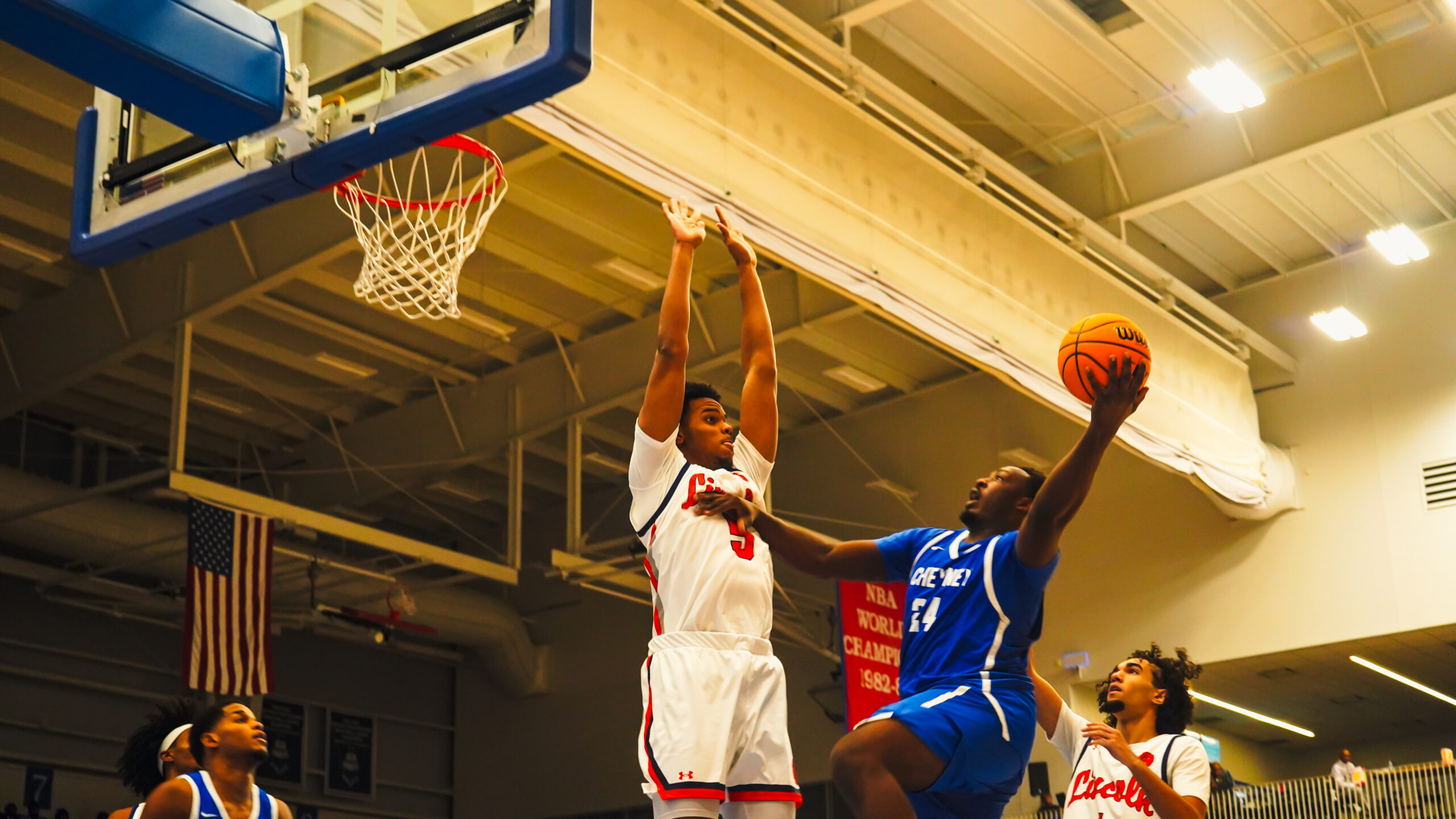
December 7, 2025 – Wilmington, DE
In a matchup filled with pride, history, and high energy, Lincoln University (PA) secured a thrilling 85–77 victory over Cheyney University at the Philadelphia 76ers G-League Affiliate arena, the Chase Fieldhouse. The neutral-site showdown brought out 1,145 fans, creating a big-game atmosphere as both teams delivered a competitive and physical contest from start to finish.
With 19 lead changes and seven ties, this game was anything but predictable.
A Tight First Half
Both teams opened with confidence. Cheyney put together a strong first half behind efficient shooting and steady guard play, scoring 36 points before the break. But Lincoln responded with 40 points, powered by timely three-point shooting and hustle plays.
Jordan Sanders sparked the Lions early, knocking down four threes and finishing with 19 points. Freshman standout Julius Olanrewaju added a smooth and efficient 15 points on 5-of-7 shooting, helping Lincoln control momentum in key stretches.
Cheyney Fights Back
Cheyney’s balanced scoring kept them in striking distance all night:
-
S.J. Hutchinson – 17 pts, 4 steals
-
Joshua Blackmon – 13 pts, 3 threes
-
D’Angelo Lake – 13 pts, 10 rebounds (double-double)
-
Clyde Frasier – 13 pts, 4 assists
The Wolves thrived in the paint, scoring 46 interior points, while also adding 15 fast-break points and 13 second-chance points.
BJ Johnson Jr. Takes Over the Second Half
Lincoln’s X-factor was BJ Johnson Jr., who came off the bench and delivered one of the best performances of the season. Johnson scored a game-high 28 points, relentlessly attacking the rim and converting 10 of 13 at the free-throw line.
Whenever Cheyney made a run, Johnson answered—whether it was with a drive, a midrange pull-up, or a clutch steal.
Rebounding & Bench Depth Push Lincoln Ahead
Lincoln controlled the interior battle with a dominant 44–33 rebounding edge. Their bench was equally impactful, outscoring Cheyney’s reserves 35–21.
Other key Lions contributors included:
-
Draven Pilson – 6 pts, 7 rebounds
-
Gian-Paul Anderson – 9 rebounds, 4 steals
-
Kesean Shillingford – perfect 3-for-3 shooting
-
Amadou Fall – 5 pts and energy minutes on defense
Lincoln also turned 12 Cheyney turnovers into 18 points, a major deciding factor down the stretch.
Closing Moments
With under four minutes left, the Lions clamped down defensively and hit crucial free throws to seal the win. The atmosphere inside the Chase Fieldhouse intensified as Lincoln executed down the stretch, earning a well-deserved victory.
Lincoln improves to 2–4 (0–0 CIAA), while Cheyney drops to 1–5.
Final Score
Lincoln University (PA) 85
Cheyney University 77
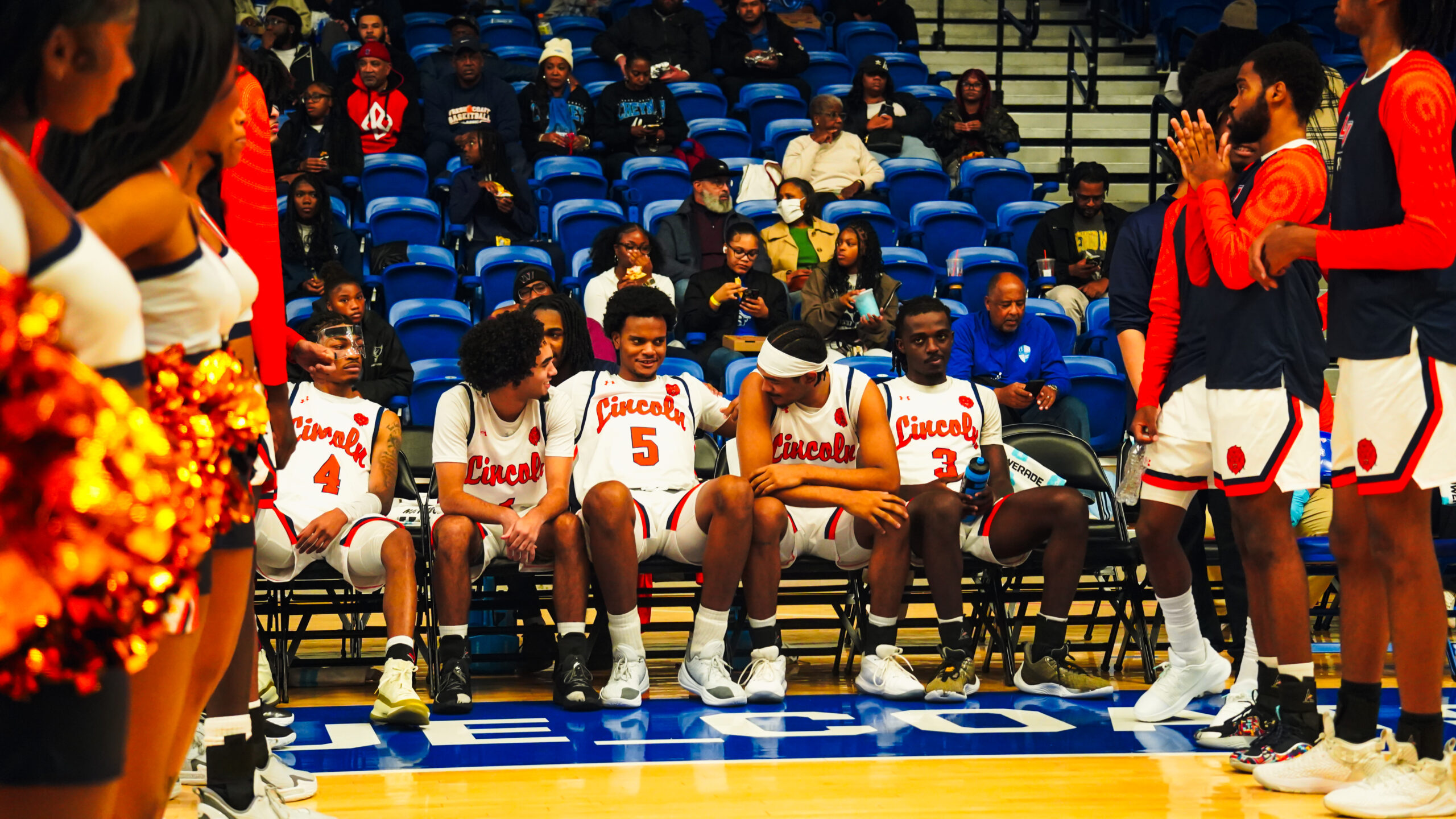

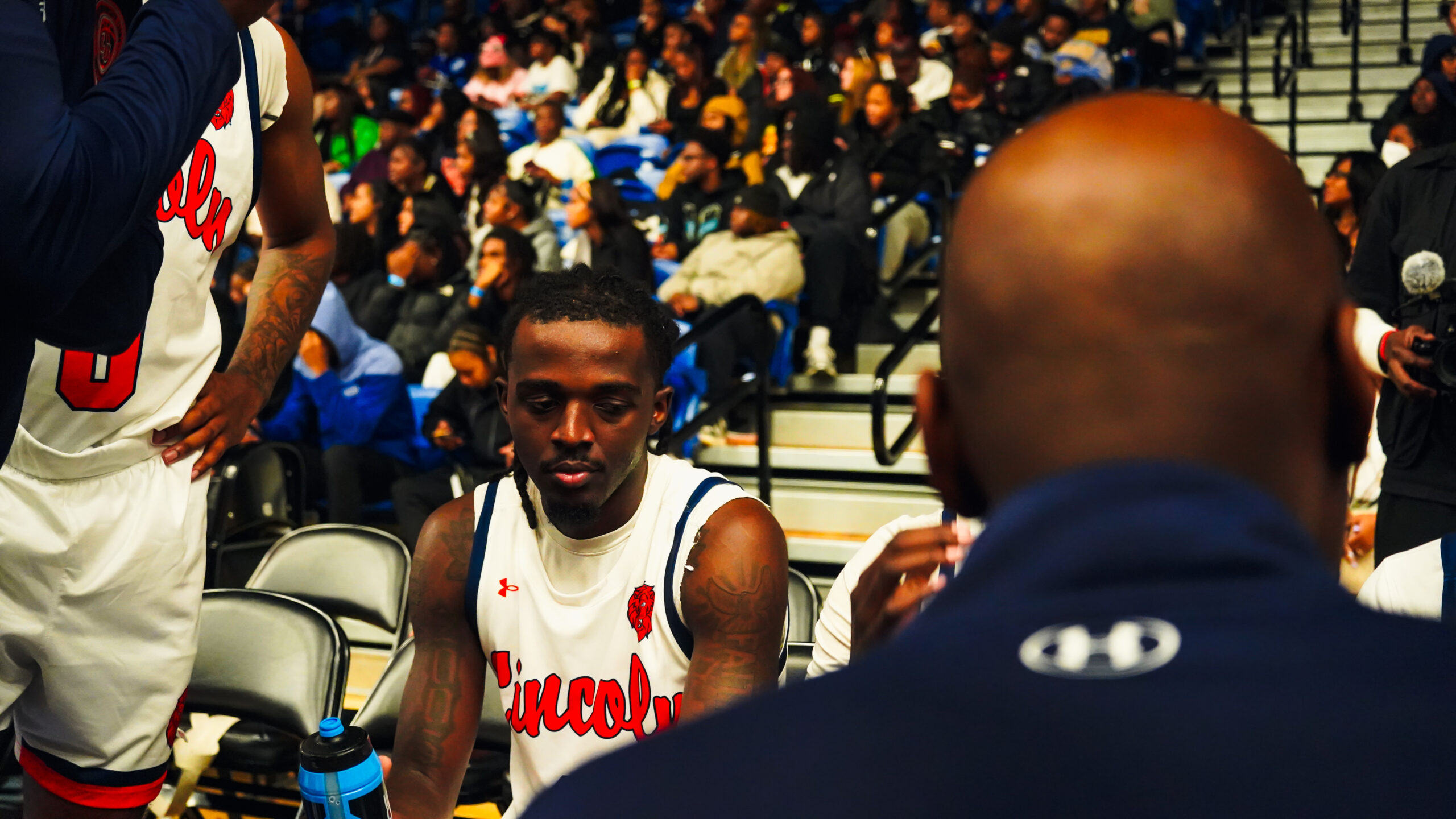
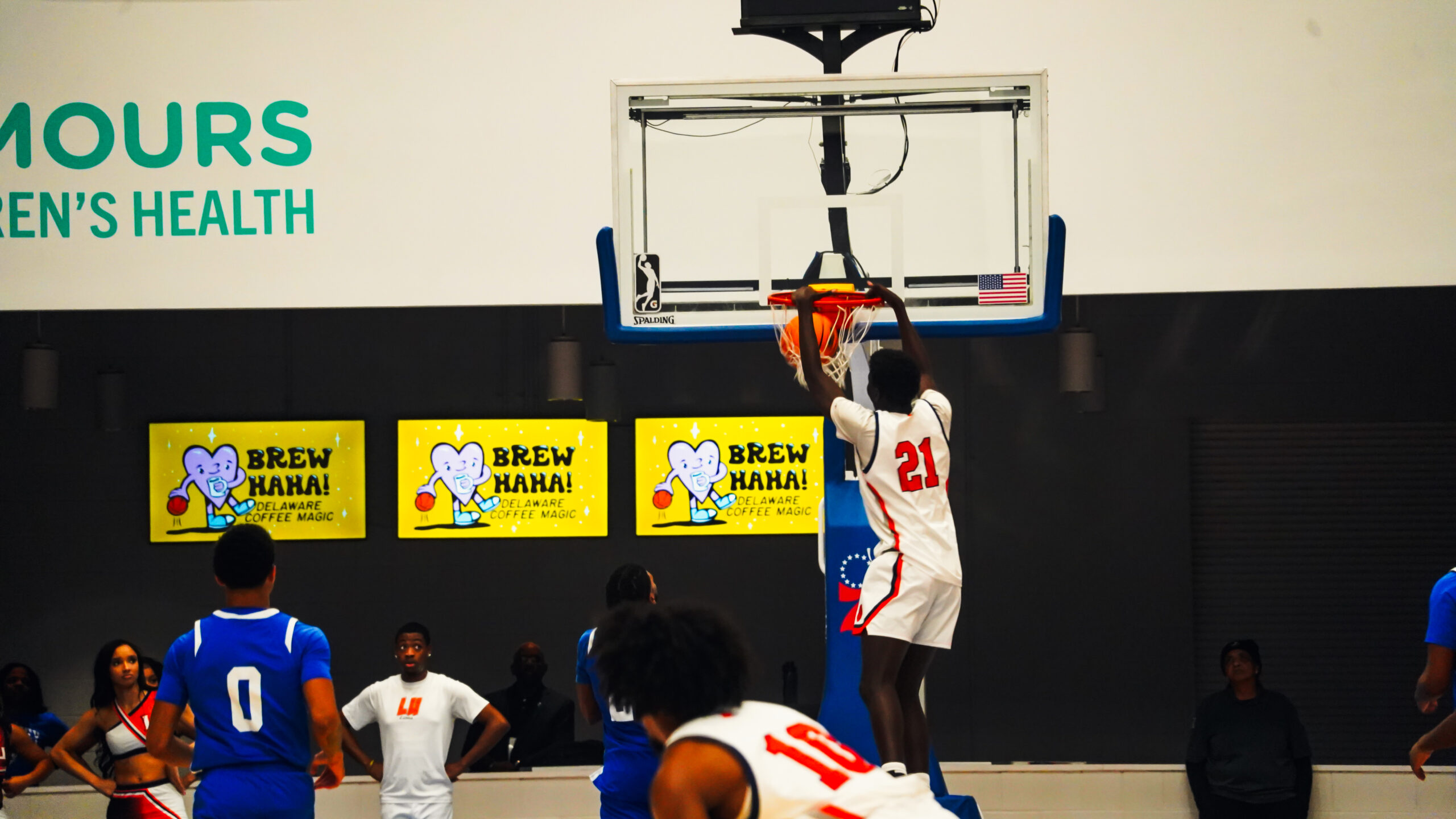
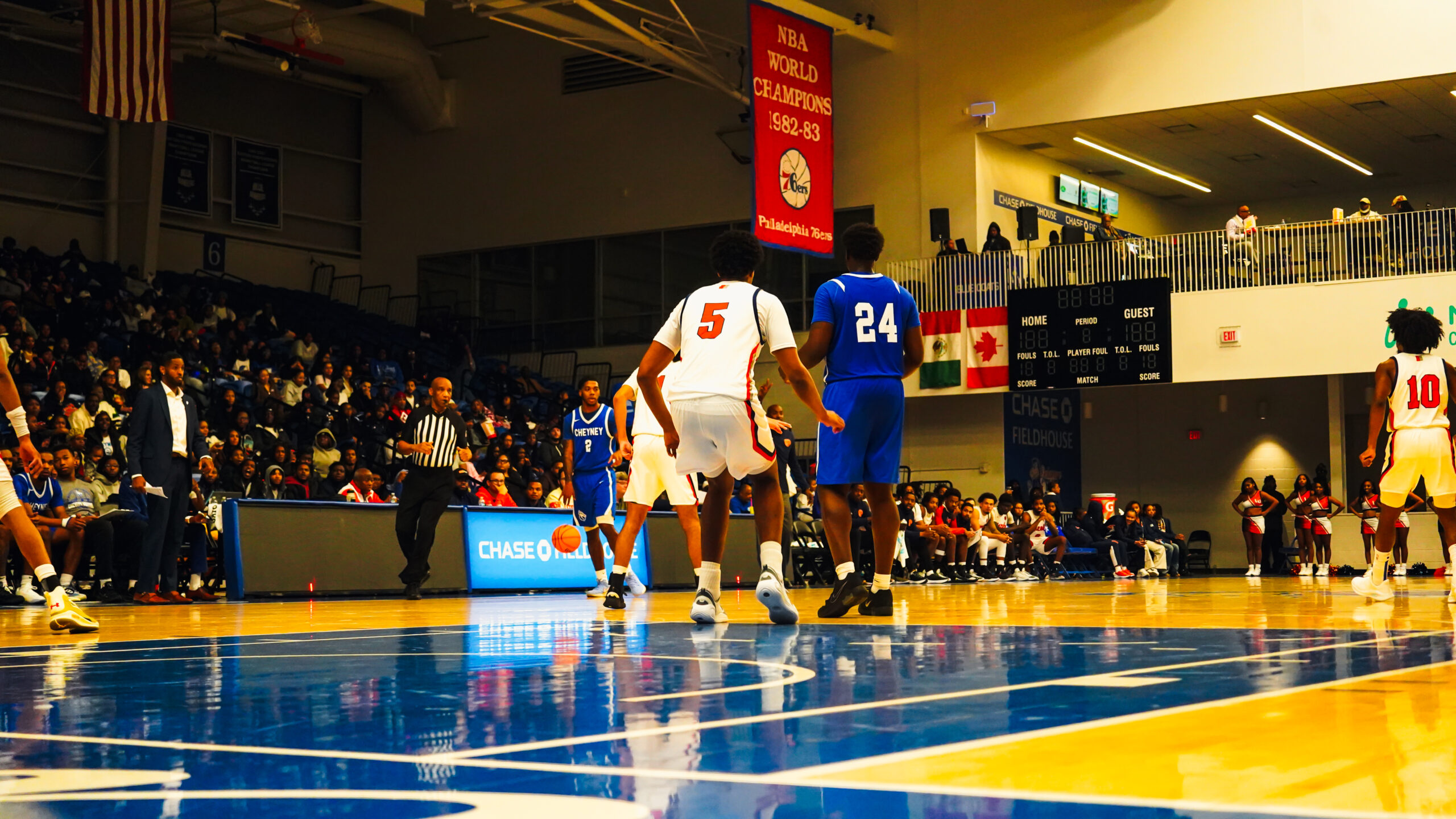
-

 HBCU ORIGINAL3 weeks ago
HBCU ORIGINAL3 weeks agoSouth Carolina State storms back from 28 down, wins 10th-anniversary Cricket Celebration Bowl in four-overtime thriller, 40–38
-
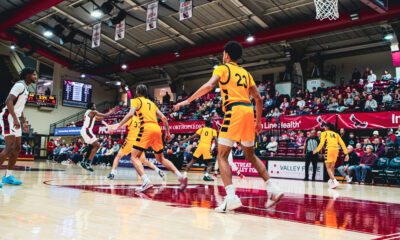
 HBCU ORIGINAL3 weeks ago
HBCU ORIGINAL3 weeks agoCoppin State Shows Growth in Road Challenge at Saint Joseph’s
-

 HBCU ORIGINAL4 weeks ago
HBCU ORIGINAL4 weeks agoJohnson C. Smith Stuns Lincoln (PA) at the Buzzer in Women’s Basketball Thriller at the Chase Fieldhouse
-

 HBCU ORIGINAL4 weeks ago
HBCU ORIGINAL4 weeks agoLincoln Lions Outlast Cheyney in a Back-and-Forth Battle at the Chase Fieldhouse
-

 HBCU ORIGINAL2 weeks ago
HBCU ORIGINAL2 weeks agoOkojie’s Double-Double Lifts Howard Past Drexel in Philadelphia
-
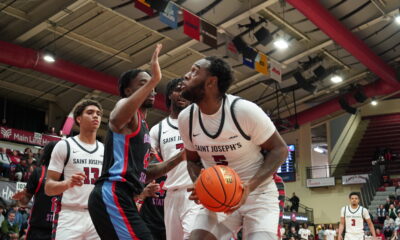
 HBCU ORIGINAL2 weeks ago
HBCU ORIGINAL2 weeks agoDelaware State Shows Fight in Road Matchup vs Saint Joseph’s
